Our Favorite Sustainable Brands to Add to Your Wardrobe
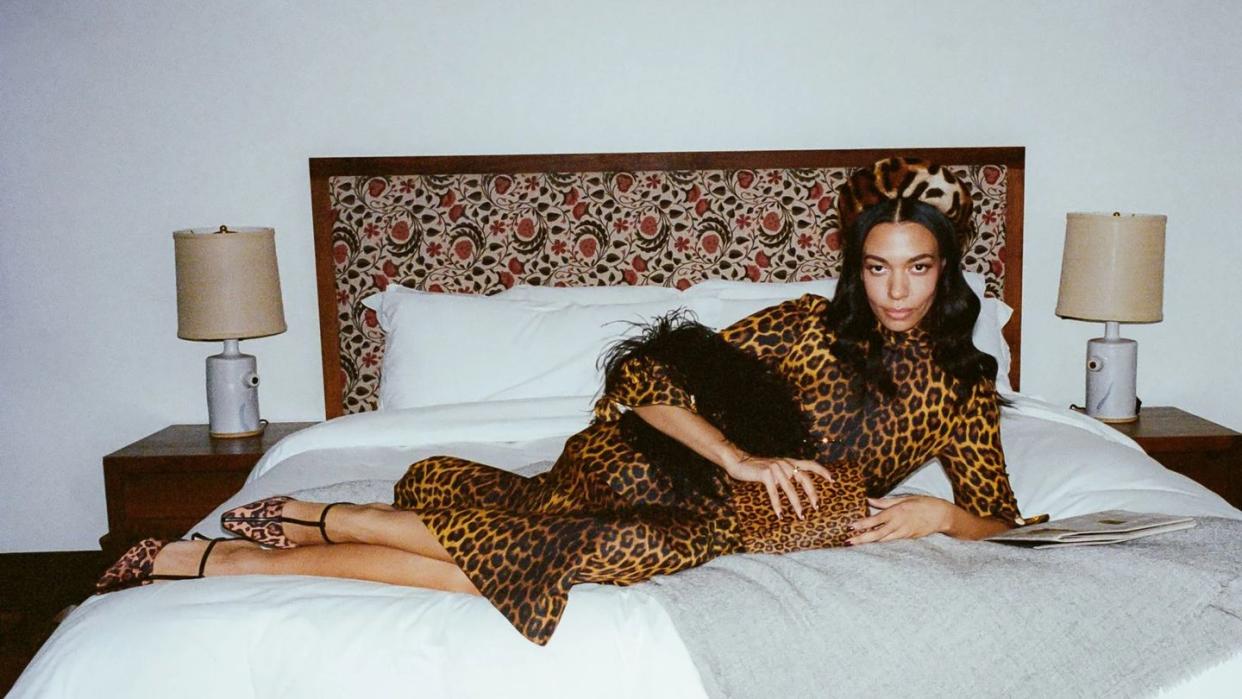
"Hearst Magazines and Yahoo may earn commission or revenue on some items through these links."
Now, more than ever, it's vital for brands and consumers to think more sustainably to look after our planet. Thankfully, many players in the fashion industry are paying more attention to the climate crisis and subsequently making greener choices. Yet, with more and more now striving to become sustainable – or, in some cases, to appear as though they are – things can become increasingly confusing.
You'd be forgiven for feeling overwhelmed when it comes to knowing what to spend your money on. With endless buzzwords to understand and issues around greenwashing, it can be difficult to know exactly where to look for truly eco-friendly and ethically made clothing. With that said, there are plenty of fashion brands out there that are producing high-quality, eco-friendly collections – and which don't sacrifice style – so that you can enjoy shopping with a clear conscience. Don't miss our Unstitched franchise, where every month we focus on one brand that knows exactly what it means to be a sustainable force for good in fashion today.
Of course, being more sustainable with fashion goes further than the labels you buy from. Whether it's shopping at sustainable shopping destinations, embracing the rental market, or opting for secondhand over buying new, there are many steps you can take toward becoming greener when it comes to shopping. It doesn't stop there, as caring for your purchases properly is also key to making sure they last as long as possible and don't end up getting thrown away.
But, if you are shopping new, then there are sustainable ways to do so. There are plenty of brands out there to invest in that are working hard to carve out a greener space in the fashion industry. We have asked some of our favourite labels what it means to be a sustainable brand in fashion today. See what they had to say, below.
E.L.V Denim
E.L.V Denim is a great name to know when it comes to shopping for a sustainable wardrobe. The luxury label – which is based in its East London studio, and was founded in 2018 – specialises in timeless, yet statement designs made from 100 per cent upcycled materials, meaning garments don't end up in landfill and harm our planet.
Anna Foster, founder of E.L.V Denim: "We need to encourage others to champion local manufacturing and slow fashion. I'm proud to be a thought leader in this space, however, this journey is not just for me and E.L.V. Denim. It’s to lead by example to others that upcycling that incorporates design and luxury tailoring can be a successful business model. We all need to be part of this change."
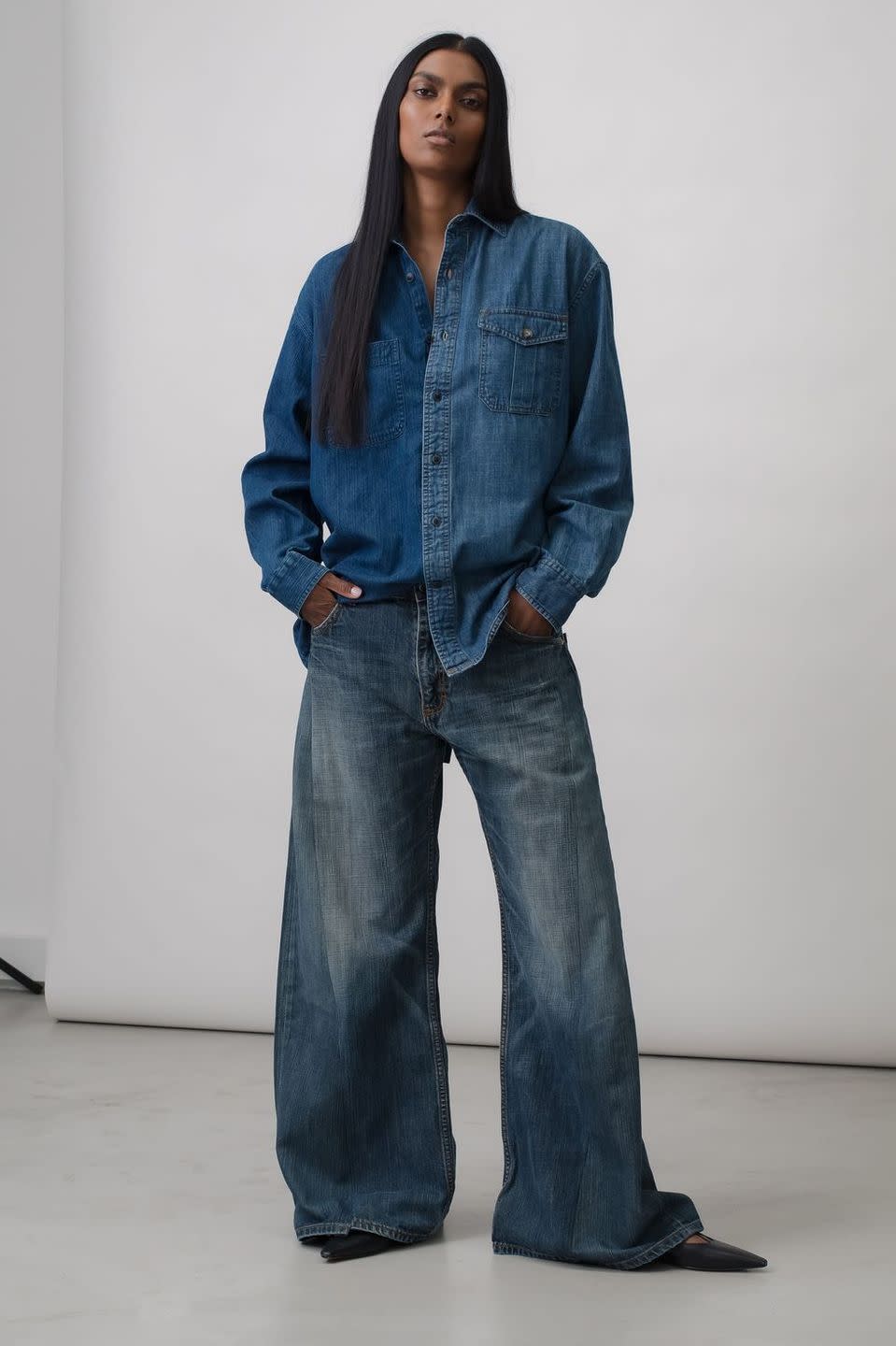
Ninety Percent
Shop NowNinety Percent puts responsible, sustainable practices above all else. This is exactly where the brand gets its name; Ninety Percent donates 90 per cent of its profits to the people that make the collections happen and five worthwhile causes. The brand offers soft, modern tailoring and new silhouettes that all complement each other – perfect for capsule dressing and your forever wardrobe.
Elliot Atkinson, creative director at Ninety Percent: "I was a co-founder and creative director at BITE Studios for four years in the brand's inception. This experience really set the creative language of a brand for me; aligning a supply chain and process with sustainability at its core comes as second nature."For Ninety Percent, I continue my design practice rooted in craftsmanship, introducing relaxed tailoring and shirting to the brand. Crafting pieces that are built to stand the test of time is key to me for real sustainable clothing; both mine and the founders' ethics at Ninety Percent are aligned, working collaboratively to make lasting change."
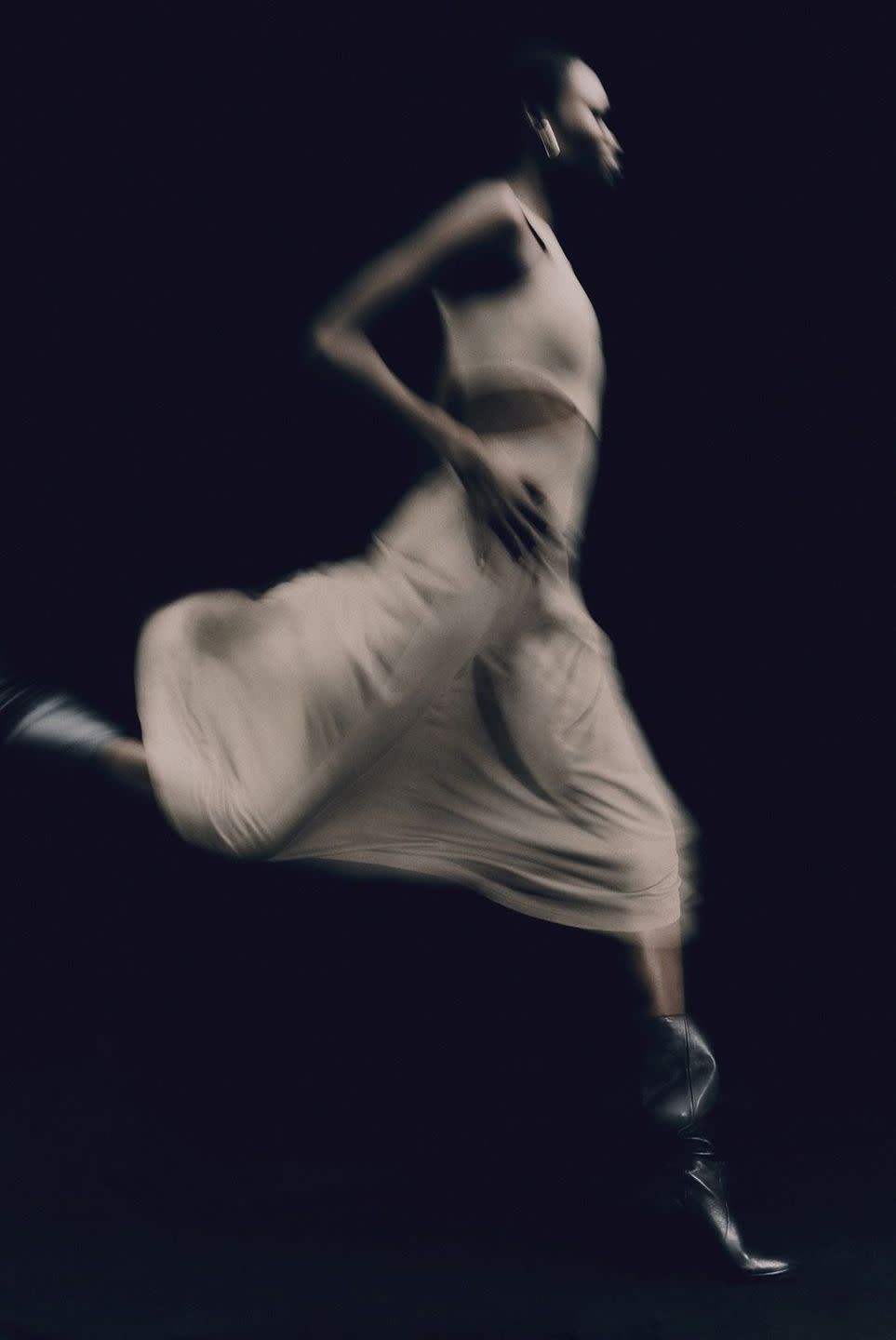
House of Marici
House of Marici is an accessories brand working to create environmentally conscious alternatives to luxury leather handbags. Aptly launched on World Earth Day in 2020, its founder Amanda Navaian's dual heritage shaped her passion for environmentalism, after growing up in Sweden and frequently visiting family in Iran, where she was struck by the country’s strong tradition of craftsmanship. This led to her creating her brand House of Marici, which uses plant-based materials, without sacrificing great style.
Amanda Navian, founder of House of Marici: "My concept of a sustainable brand goes back to 2018, when I first came across Piñatex [leather alternative made from pineapple leaves] and was blown away by it. It was created by an entrepreneur called Carmen Hijosa [a Cartier Women’s Initiative Awards finalist], who worked out how to use the by-products from the pineapple farming industry in the Philippines to make a soft, plant-based material that I now use in all my collections. For me, true sustainability means using natural products that are here on Earth rather than synthetic alternatives."
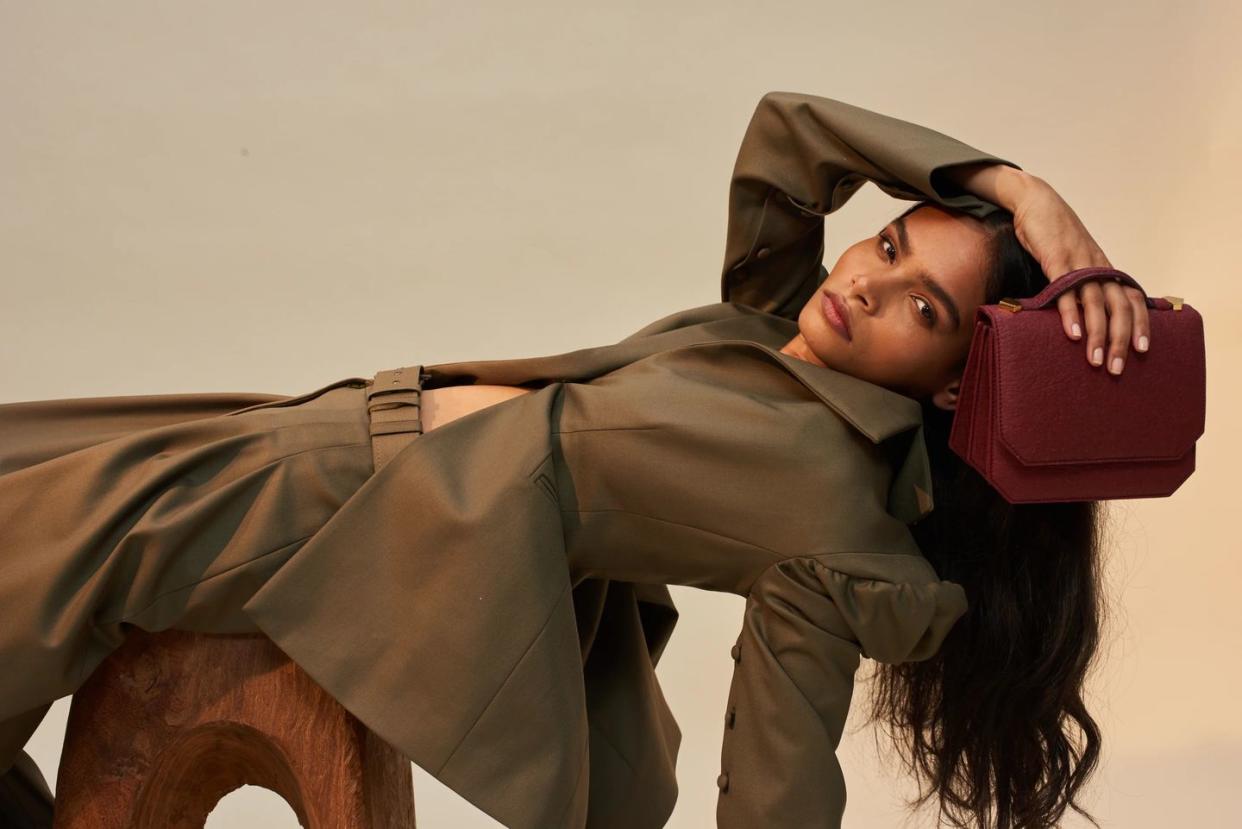
Sézane
Shop NowParisian brand Sézane has a simple aim – to create high-quality, perfectly cut pieces designed to be worn forever. Over its 10 years in the industry, the label continues to focus on limited-quantity items, operating with an alternative model that is equal parts creative, innovative and eco-friendly. You can read more about the brand's sustainable commitments here.
Morgane Sézalory, founder of Sézane: "Sézane is sustainable by essence, with a responsible production model which has no intermediaries, flash sales or overproduction. An ideology followed since the creation of Sézane, which has led the brand to be B-Corp Certified. From the choice of production methods, raw materials, and working conditions, to the environmental footprint and engagement in the community, B-Corp is the stringent and independent validation of what Sézane stands for."
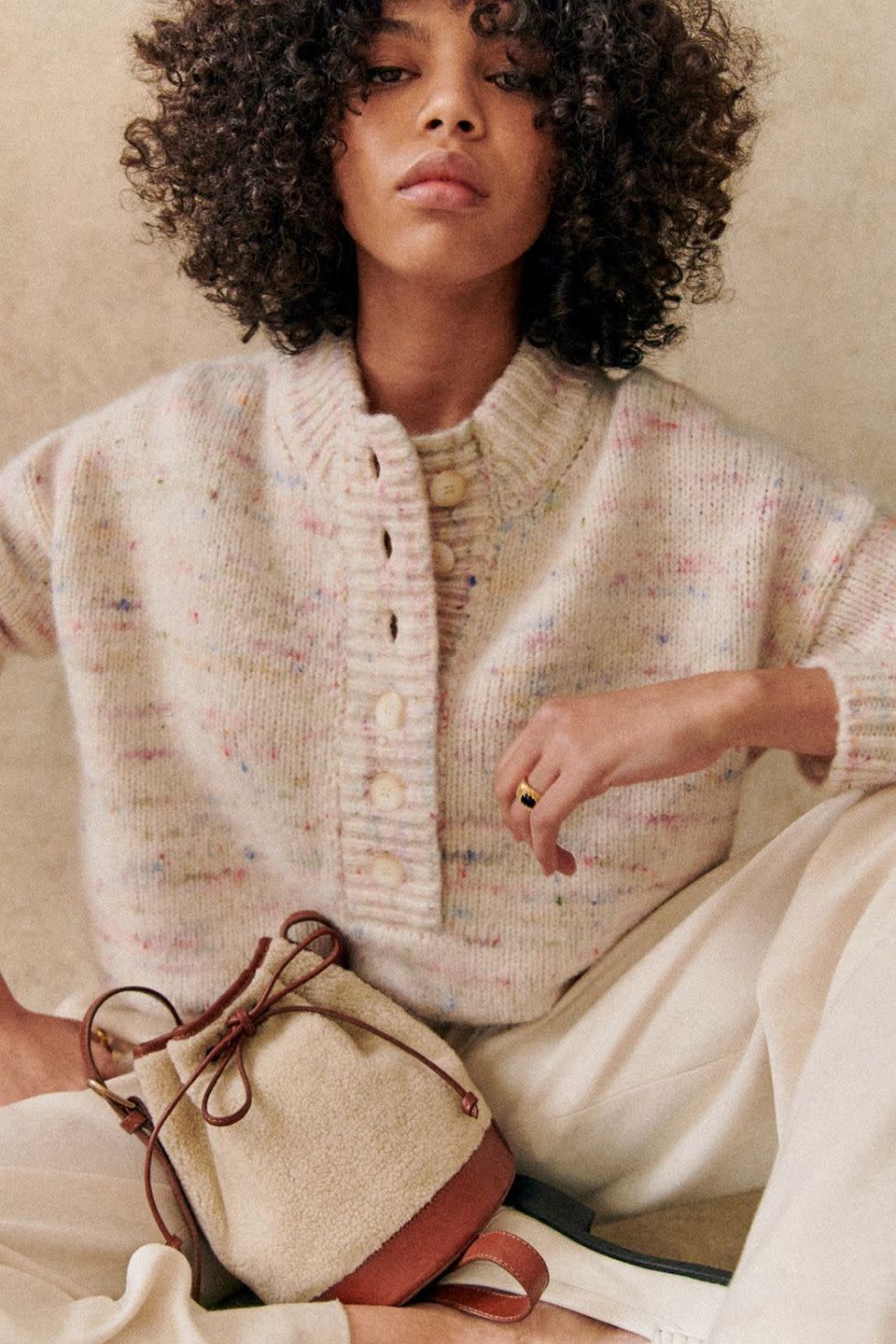
Gabriela Hearst
Gabriela Hearst is one of New York’s most influential designers, known for her elegant collections that focus on sustainability which is at the core of the brand. Last September, Hearst staged the first carbon-neutral fashion show during New York Fashion Week, minimising its carbon footprint through working with EcoAct and making a sizeable equivalent donation to the Hifadhi-Livelihoods Project in Kenya. The designer says around 25 per cent of her collections are made from dead stock – materials that would have previously ended up in landfill – and she works with 600 women across Uruguay who make her designs by hand.
Gabriela Hearst, designer: "With sustainability, it’s not about talking; it’s about the doing. I also think if you put restrictions on someone’s creativity, it gives them more focus," she previously told us. "My design effort is to build something beautiful that is well-crafted using the right materials that you’re excited about from a design point of view, but that you’ll also have your whole life. That woman upstairs doesn’t want to ever give that dress away; she wants to keep it forever, and that’s my goal.”
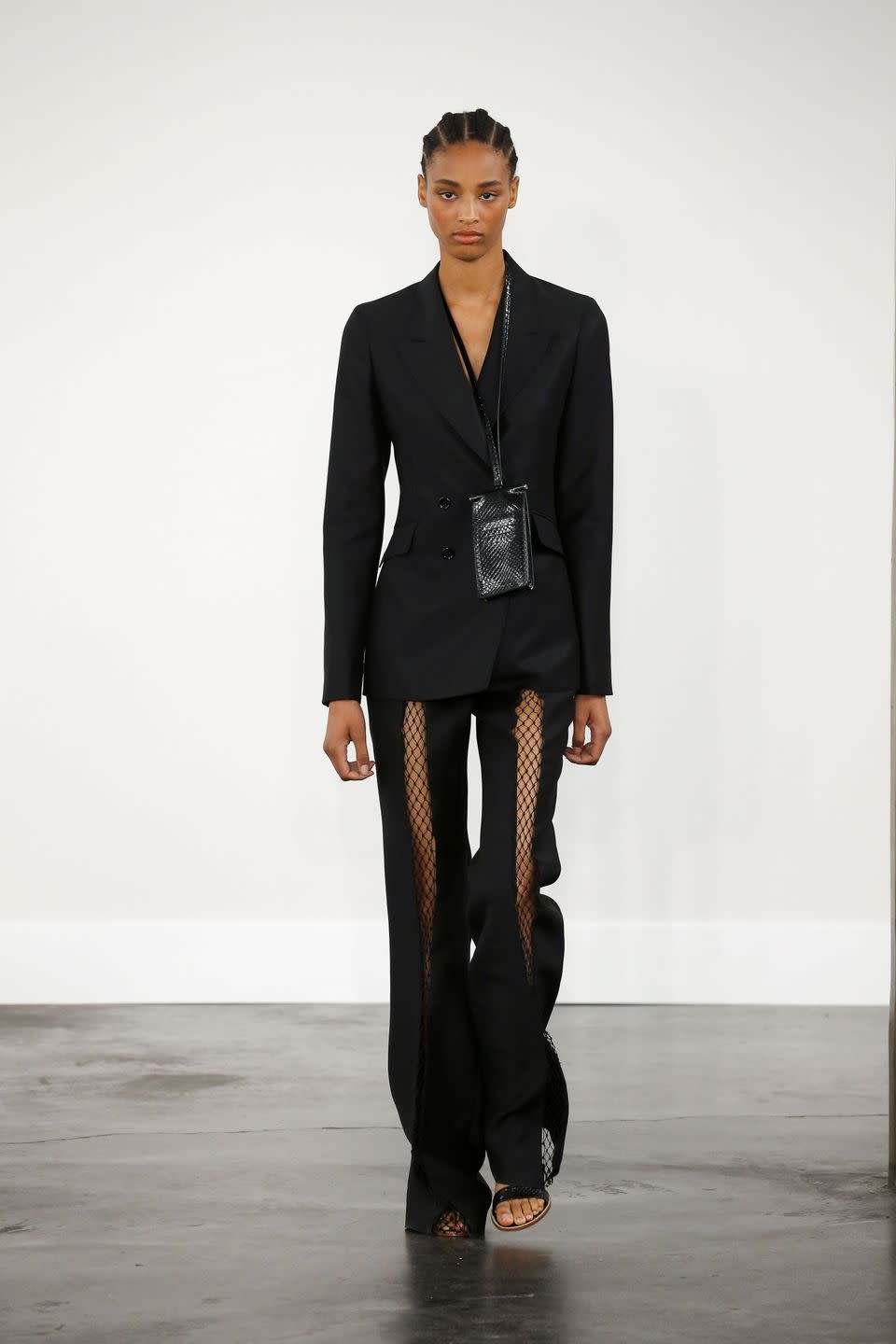
Brøgger
SHOP BRØGGER
Julie Brøgger launched her Danish label in 2017 based on the idea that longevity is key to a greener wardrobe and consuming fashion in a better way. Brøgger is committed to low-impact production and is known for its perfect balance between masculine and feminine aesthetics, via sharp tailoring and soft silhouettes.
Julie Brøgger, designer: "With the current situation in the world, from a looming recession to war in Europe, choosing a more sustainable way to produce and work is really being challenged. But I’m positive that the last years of change in the industry have moved the needle permanently for brands and consumers, so we all continue to improve our practices and way of consuming fashion. Sustainability is still a big investment for Brøgger, but one that I believe will future-proof us."
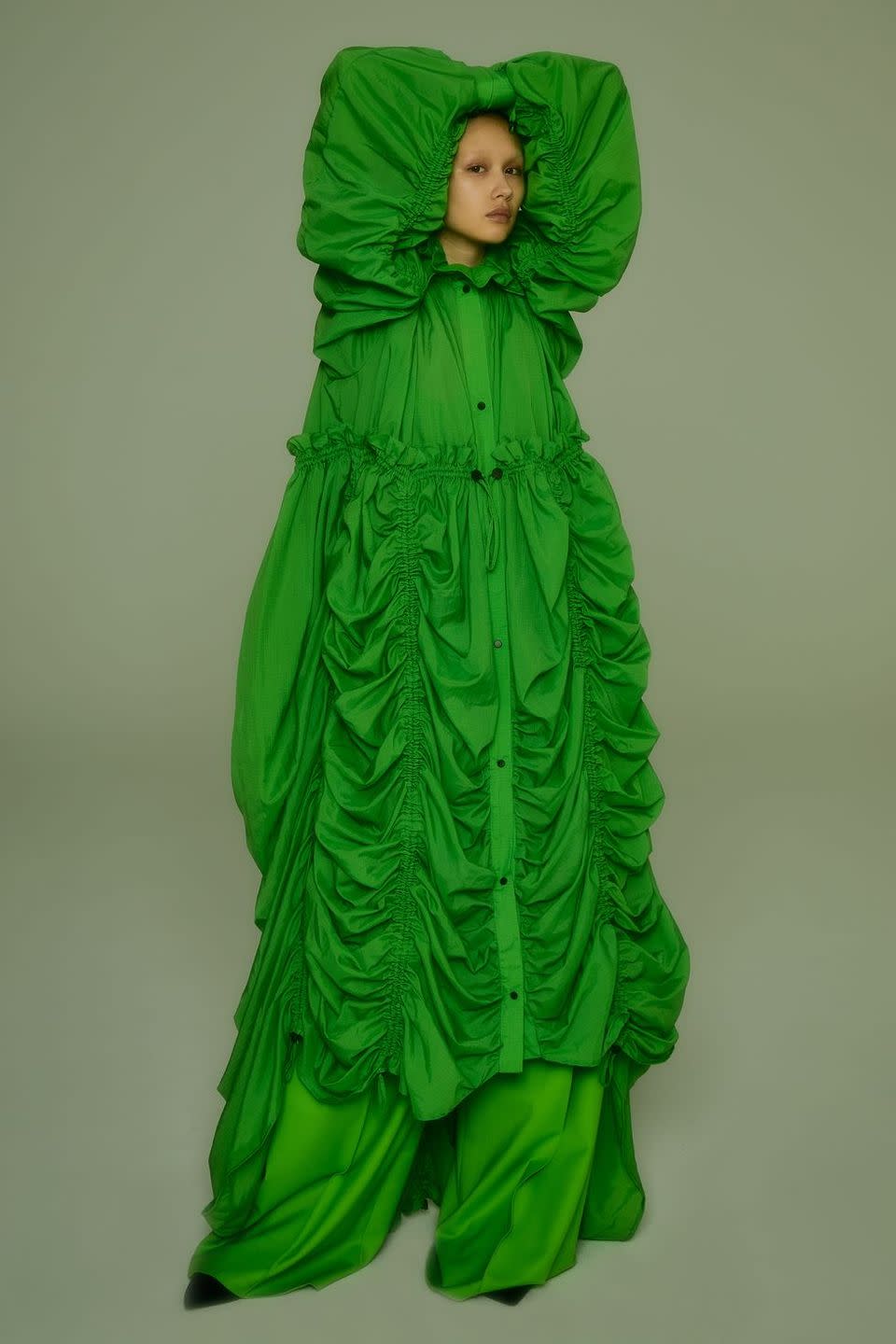
Stella McCartney
Shop NowStella McCartney writes on her website that 'eco' shouldn't be a word "that immediately conjures up images of oatmeal-coloured fashion or garments that are oversized or lacking in any sort of luxury or beauty, detailing or desirability". McCartney is known as one of the pioneers in designing ethically and challenges that stereotype, from never using leather or fur to helping the environment by protecting endangered forests.
Stella McCartney, designer: "Fashion has a deep history and tradition. From my early days working on Saville Row, I've developed a great appreciation for the legacy of these creative forces who came before and upon which we now build. It's truly been an honour to work alongside talented teams who embrace the challenges of our era, while building a brand with lasting significance. I can only hope that my work in sustainability, innovation and regenerative materials will serve to inspire future generations. I believe it is really the way we need to work now and in the future."
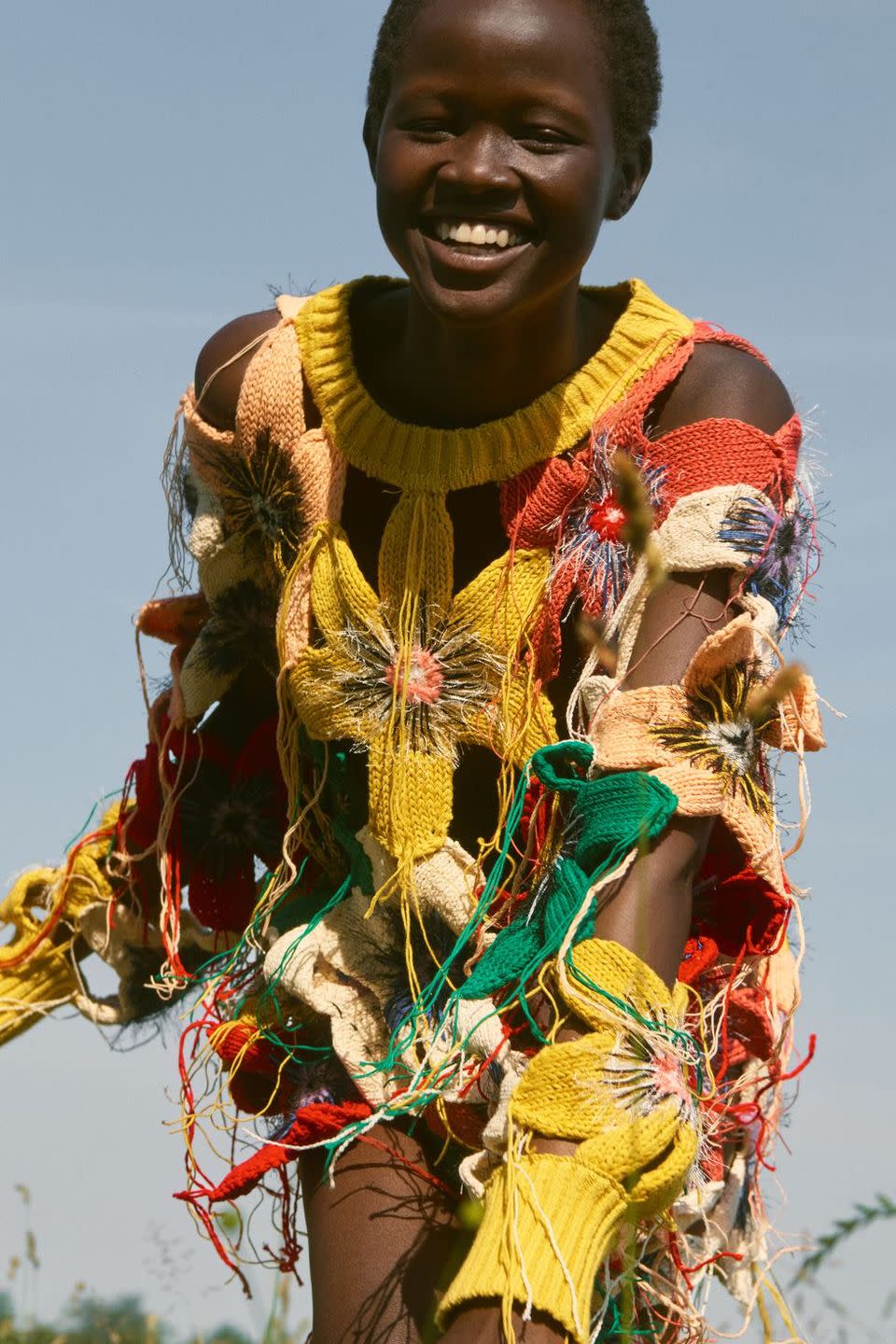
Omnes
Omnes – meaning ‘for all’ in Latin – launched in 2021, with the sole mission of making sustainable fashion accessible whatever your budget. Its products are responsibly sourced, as well as accessibly priced; the brand is a breath of fresh air and a much-needed antidote to fast fashion. From the fabrics used to the factories Omnes works with, every step of the process is researched and monitored ensuring every piece is made to the highest environmental standards, making it a muston your sustainable brand radar. This passion is what attracted actress and sustainability activist Naomie Harris to collaborate with Omnes on an eco-friendly collection late last year.
Jordan Razavi, founder of Omnes: "For us, it also has to be accessible to the masses in order to make a real change, and so that is why we work really hard on our price points to ensure we can be bought by as many people as possible while ensuring everyone involved is paid a fair price."
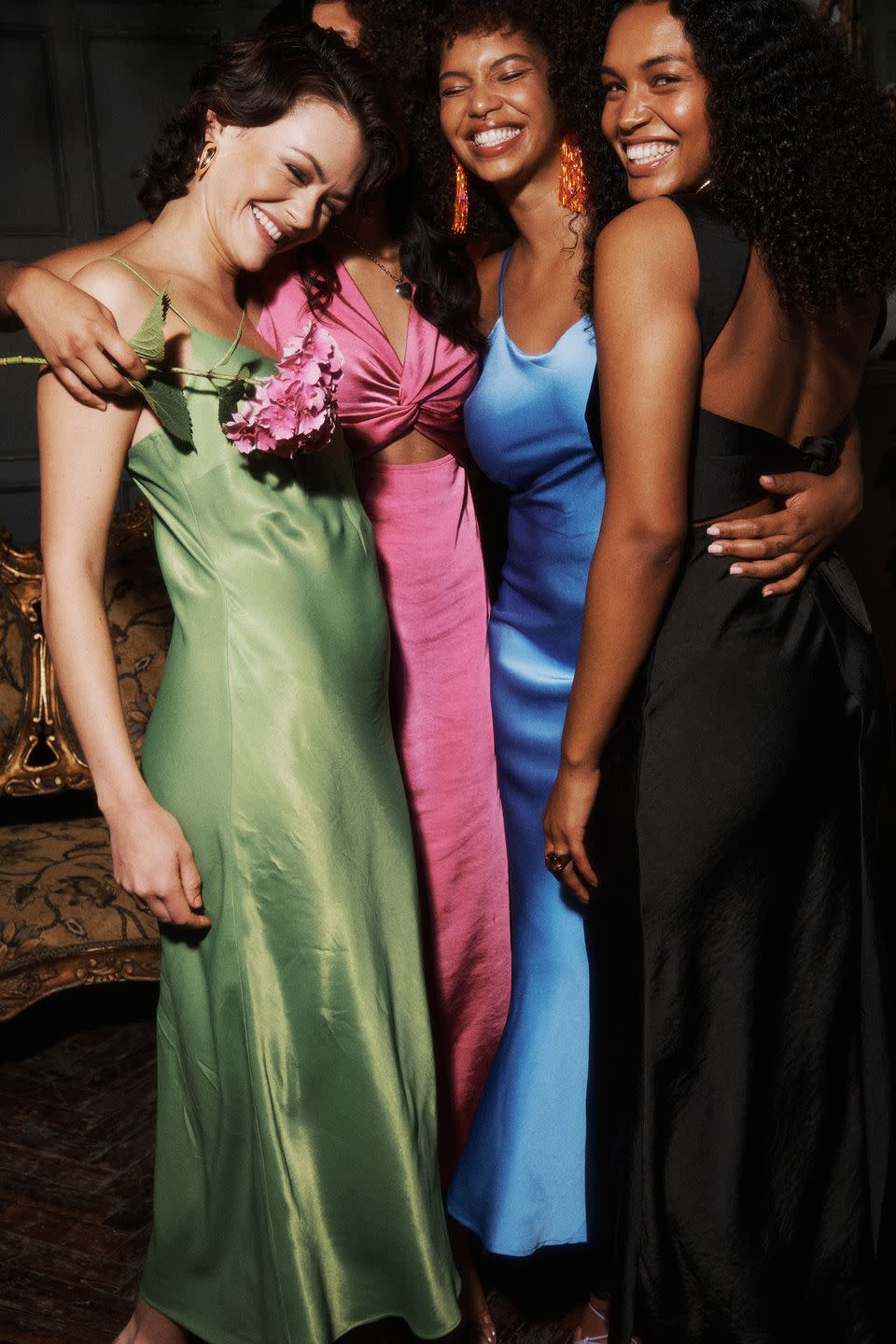
Mother of Pearl
Shop NowMother of Pearl has perfected the art of designing with a conscience by producing contemporary, wearable pieces. Creative director Amy Powney has reworked the brand's entire supply chain, by introducing natural fibres, transparent manufacturing, and a socially responsible approach to suppliers.
Amy Powney, Creative Director, Mother of Pearl: "There is no handbook on how to make a sustainable brand today, you have to start at the beginning. This means lots of research, asking millions of questions and some travel to understand things with your own eyes. We've reworked our entire supply chain this way; introducing natural fibres such as Tencel, transparent manufacturing, and a socially responsible approach to suppliers. We give access to the full story behind our products via our online sustainable attribute filter, giving the consumer the power to make informed choices. Sustainability isn't an emerging topic for me, it’s been my passion for 16 years."
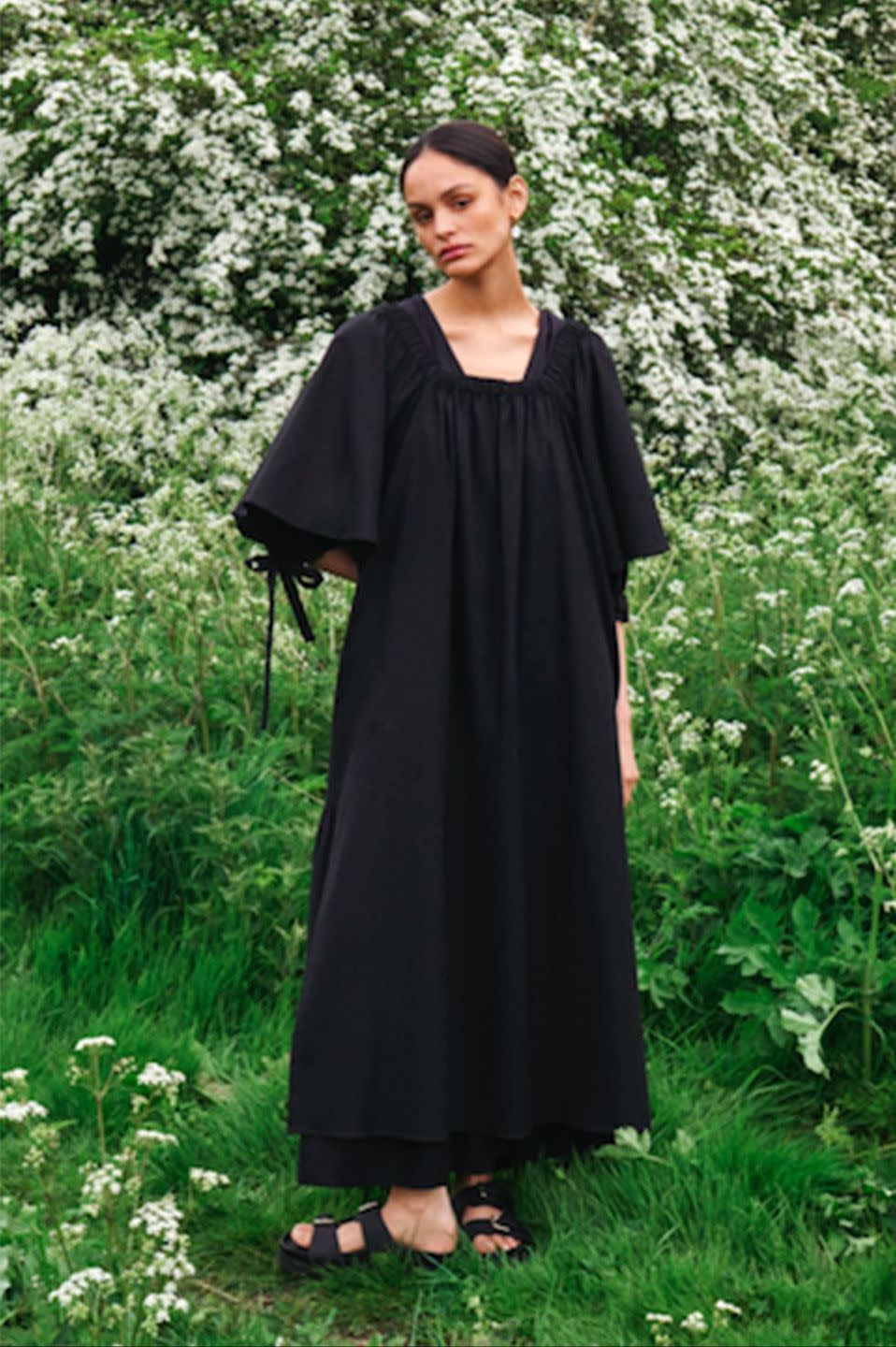
Navygrey
Navygrey is a must in any little black book of sustainable brands. Famed for its curated collection of classic knits, founded by Rachel Carvell-Spedding who – after years of trying to find a replacement for her mother's perfect navy jumper – decided to launch her own. The brand works with some of Europe's best-practice manufacturers to create a transparent supply chain. Each style is produced in limited quantities to avoid excess waste, certified recycled paper is used as packaging and, as much as possible, Navygrey aims to ship the majority of stock by road and boat.
Rachel Carvell-Spedding, founder of Navygrey: "Sustainable fashion to us is about those pieces that have a real purpose in your wardrobe. Timeless, always relevant – jumpers you return to year after year. Made of the purest, traceable wool from well-treated sheep. Sheared by proper craftsmen, dyed naturally and organically. Knitted by experts in Britain and Portugal with a lifetime’s experience. Zero-waste techniques, low-impact, and made in limited batches. Consistently traceable and natural since we began in 2019."
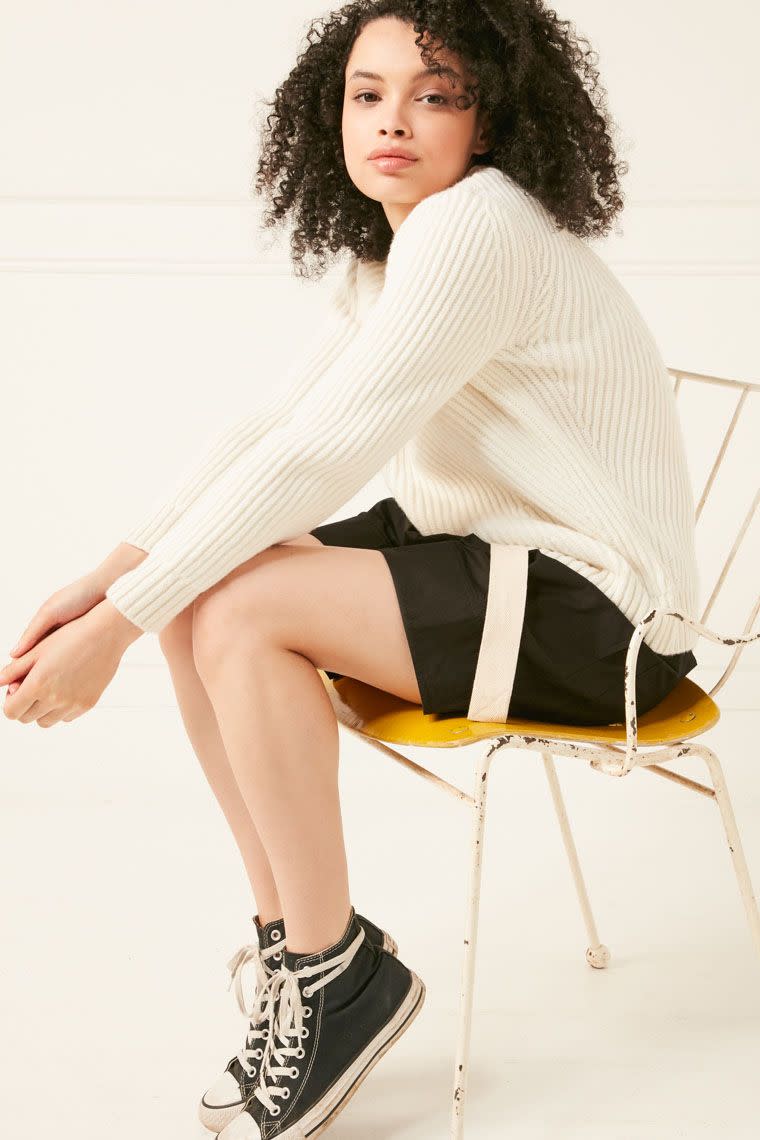
Brother Vellies
SHOP BROTHER VELLIES
Designer Aurora James launched Brother Vellies in 2013, intending to keep traditional African design practices and techniques alive through her luxury footwear label. Artisans from across the globe create collections from vegetable-tanned leathers, soling from recycled tires, hand-carved wood, floral-dyed feathers, and fabrics. The Brooklyn-based label is loved by some of the world's most stylish women, including Solange Knowles and Meghan, the Duchess of Sussex.
Aurora James, founder of Brother Vellies: "Sustainability is at the core of the Brother Vellies brand. We are proud to help create and maintain artisanal jobs around the world by partnering with artisans who have been developing their craft over multiple generations. We seek to lessen the impact of our production practices by being careful with production quantities, minimising waste, reusing materials, and continuously seeking to improve our processes. Sustainability to us means building products that are meant to last, treating one another with respect, and thinking about the impact we are leaving on the world."
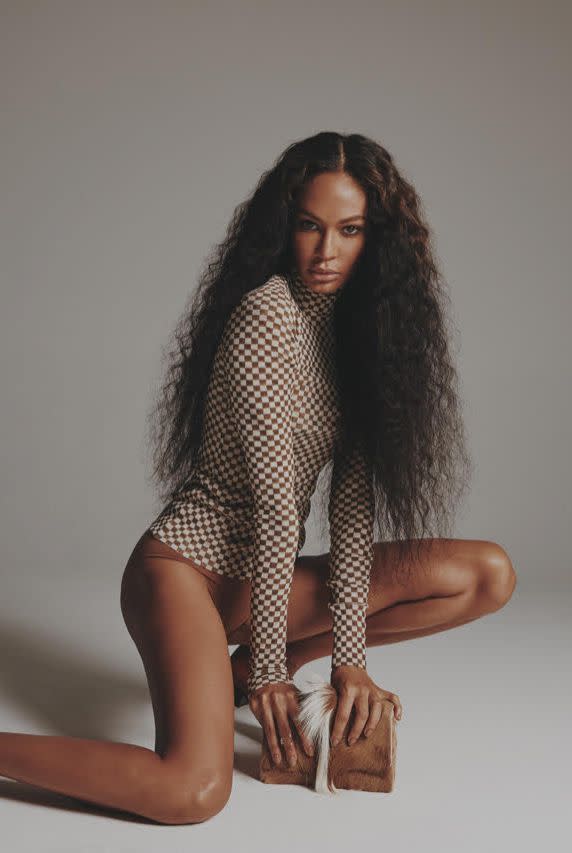
Bogdar
Founded by Teodora and Pavel Lozanov in 2015, Bogdar is an independent fashion label that creates contemporary, sustainable pieces. The label builds on its family’s legacy in Bulgaria, with all of its pieces being produced in its family-owned facility in Vidin, with a team of just 16 members. It uses organic, sustainable, and recycled fabrics, with its custom prints produced digitally to reduce water waste and ink usage. The brand works with family-owned, socially responsible suppliers that are certified in sustainability (read more here) to create made-to-order pieces to avoid overproduction.
Teodora Lozanov, founder of Bogdar: "We do not claim to be 100 per cent sustainable but we aim to find the most sustainable alternative to every solution. Sustainability goes far beyond using the right fabrics, it goes all the way to the processes and people. Owning our production allows us to be involved in every step of the process – be it our solar panel heating system or simply the happiness and well-being of the people that we work with. We aim to prove that sustainability can be chic, fun, and hot."
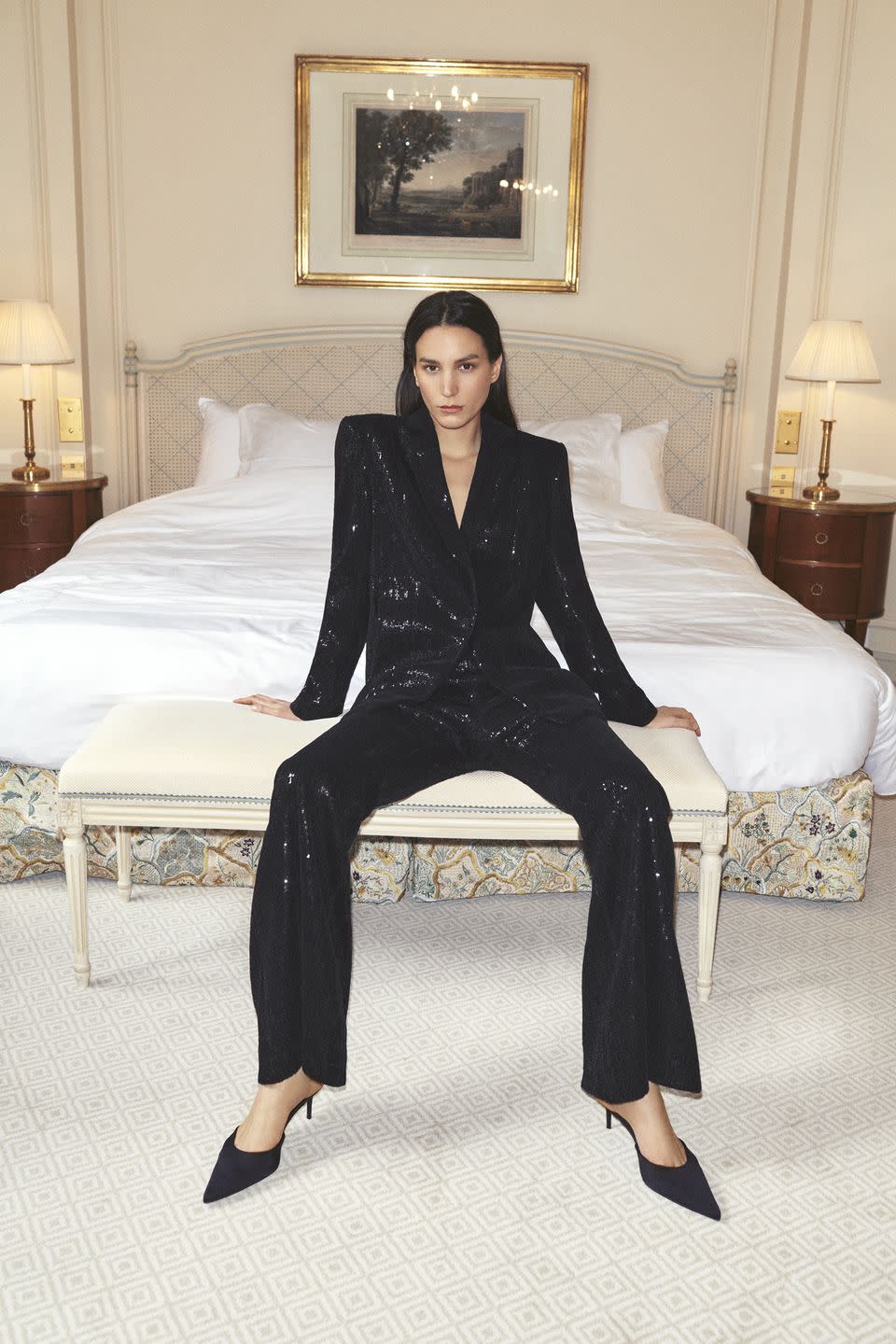
Stine Goya
Shop NowCopenhagen-based label Stine Goya is known for its playful, colourfully printed dresses and separates. Goya is committed to sustainable practices, reducing waste and using smart fabrics.
Stine Goya, designer: "Being a sustainable brand in today's fashion industry can mean a lot of different things. For us, it means that every action we take is done so as responsibly as possible with the planet and its people in mind. Becoming a sustainable brand is a journey and we try to be as transparent as possible throughout. It is challenging but actually pushes us to be more creative at the same time."We are becoming more and more aware of the numerous intricacies within the topic itself, making it easier to navigate towards the right solutions. I believe it is useful for consumers to know that there are so many different avenues to becoming more sustainable and that every individual making a small effort is contributing to positive change in the world. Every effort counts and we should all encourage each other to make more responsible choices in everyday life."
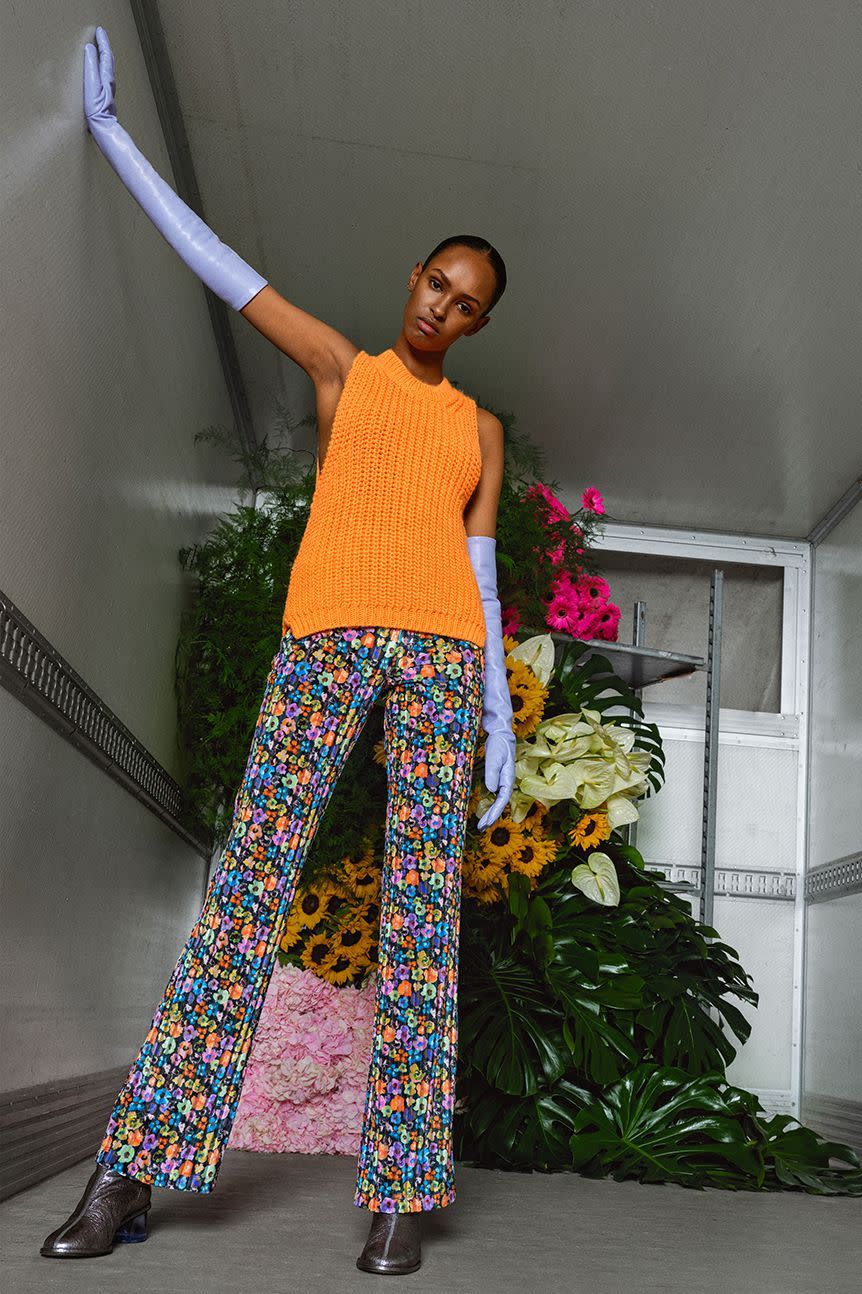
Bite Studios
Bite (an acronym for By Independent Thinkers for Environmental Progress) was born in Stockholm by four co-founders with a combined passion for sustainability. The minimalist label, made using certified organic fabrics, comprises 20 fixed styles that are updated seasonally, promoting the idea of timeless clothes that are made to last. The results are elegant, well-cut pieces in shades of navy, oatmeal, and grey with pops of orange thrown in for good measure.
William Lundgren, co-founder and CEO of BITE Studios: "Our mission is to create uncompromisingly sustainable yet thoughtfully designed clothes. By creating a thoughtful, pared-down wardrobe with meticulous attention to fabrics and details we can offer high-end clothing with minimal impact on the environment. Each BITE piece is created with the lightest possible environmental footprint with a continuous strive to find more sustainable solutions. Right now, 96 per cent of the luxury materials in our collections are of organic, recycled, or low-impact origin. Each piece is designed to be exceptional; to stand the test of time. We also offer a circular system, called BITE buyback, with the aim to ensure a longer lifespan for garments and textiles already part of the fashion ecosystem."
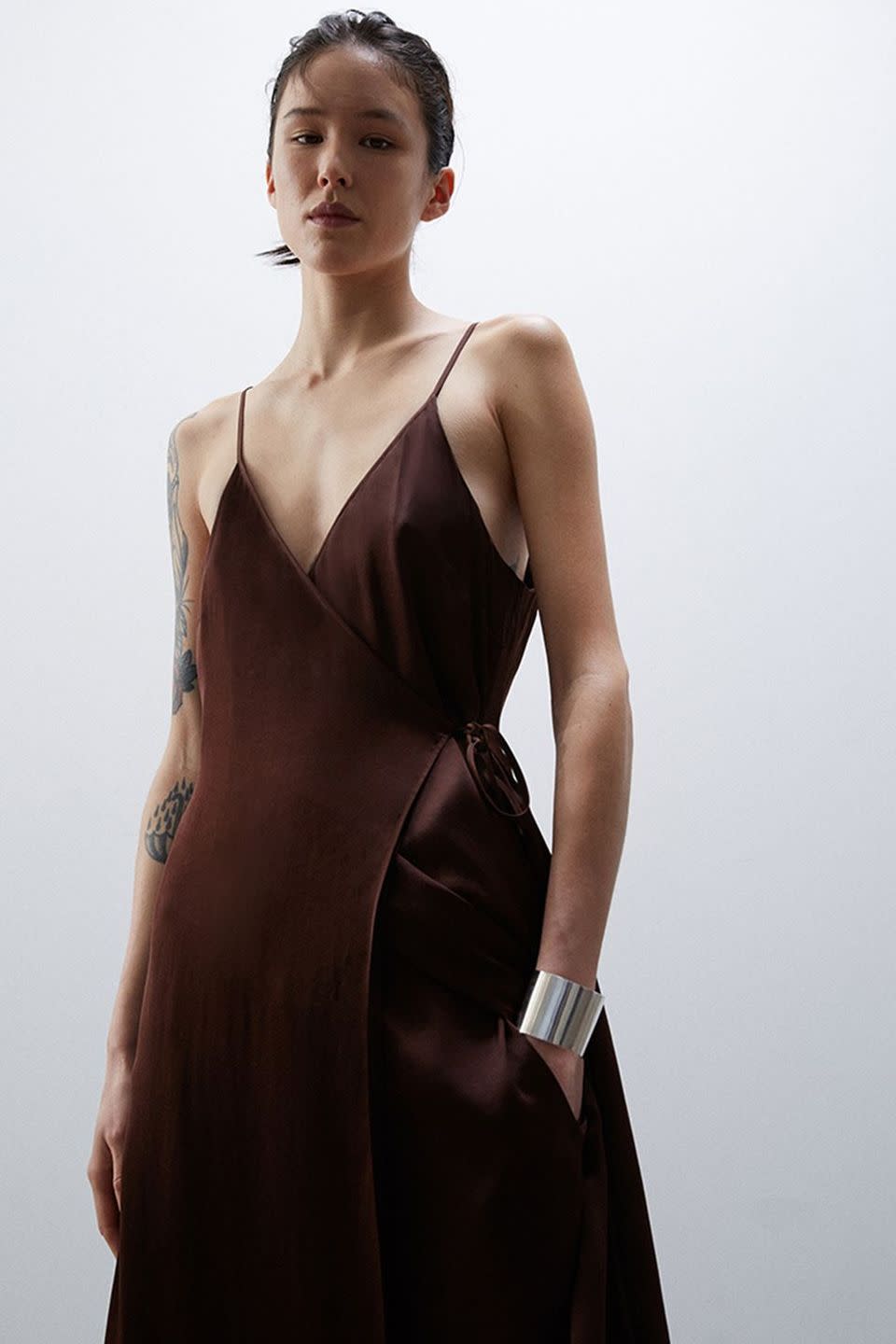
Asket
Asket focuses on giving its customers the perfect fit – which, as we know, is key to any capsule wardrobe. If you're purchasing the right size with good quality, you won't need to keep replacing, therefore taking a greener approach to your wardrobe. With 50 sizes available, there's truly something for everyone with Asket.
Dworsky and Bard Bringéus, founders of Asket: "When it comes to the word sustainability, we are on the side of caution; in fact, you won’t find it anywhere on our website. The reality is that there’s no such thing as sustainable fashion: every garment that’s created has an impact. Only by reducing product output and decreasing consumption habits, can we turn around issues surrounding the fashion industry."Asket’s whole business model is hinged on distancing ourselves from trends & seasons. Instead building a permanent collection of garments designed on the principle of maximum mileage, honouring the resources it takes to create them, and with it slowing down society's insatiable need for replacement."
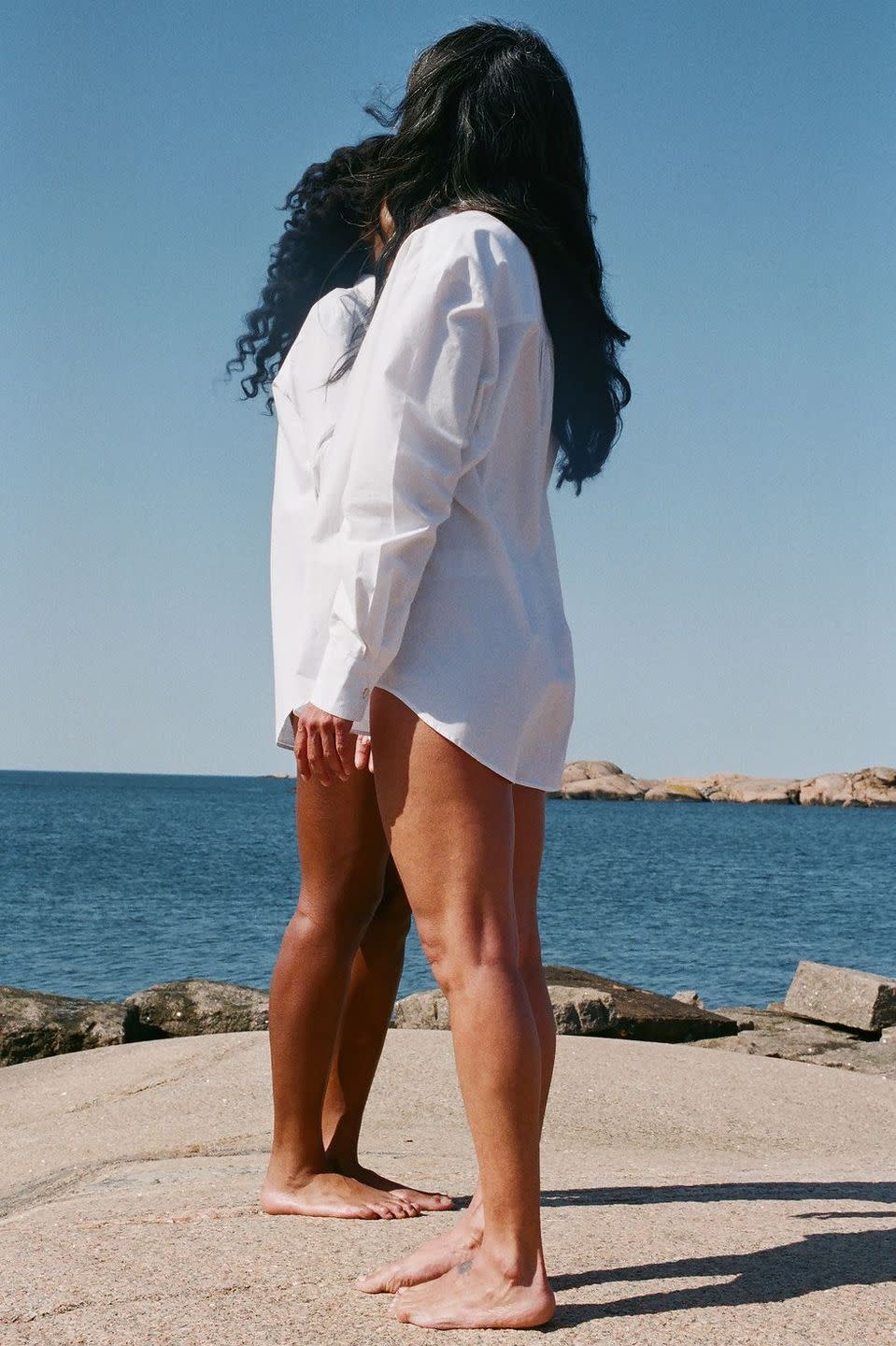
Maggie Marilyn
Maggie Marilyn believes transparency is key when it comes to being a responsible brand. The designer is always vocal about who makes her collections, where the materials are sourced and what the supply chain looks like. This year, the brand received its B Corp certification, recognising it for its social and environmental impacts – meaning shoppers can trust Maggie Marilyn when they say they're using fashion to create a better world.
Maggie Hewitt, founder and designer at Maggie Marilyn: "Unfortunately, the word sustainability is still largely unregulated and therefore susceptible to misinterpretation and greenwashing. For Maggie Marilyn, our commitment continues to be running our business in harmony with people and the planet, and forging a future in fashion that is rooted in transparency, circularity, regeneration and inclusion."
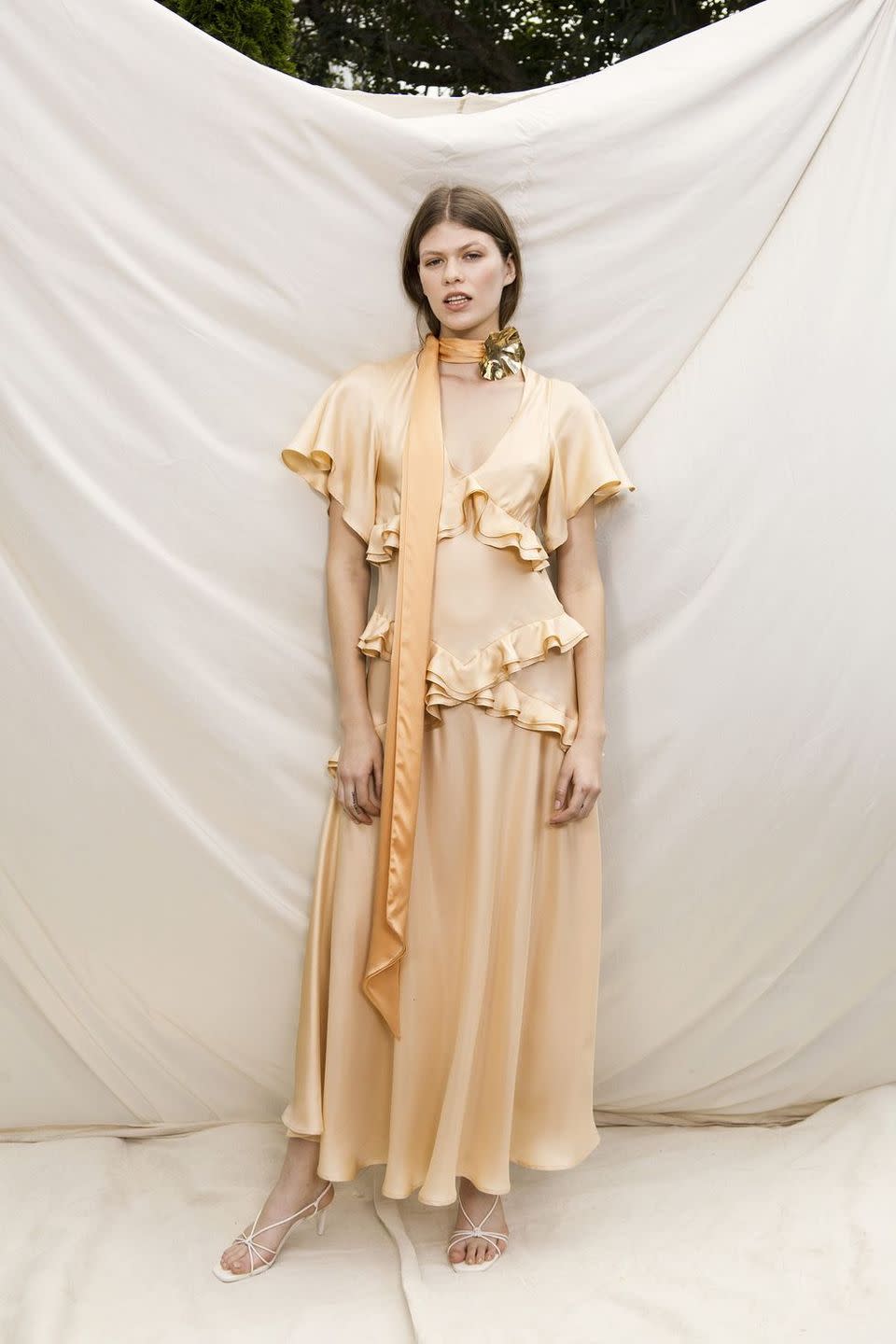
Nynne
Nynne represents a culture of buying less but buying better. The label does this by focusing on eight key areas of sustainability which it aims to implement throughout its operation; materials, production, proximity, avoiding deadstock, consciousness, durability, packaging, and its own 'Diana' concept. The brand's signature piece, the 'Diana' dress, represents Nynne's way of designing - pieces that are versatile, stylish, and timeless.
Nynne Kunde, founder of Nynne: "Sustainability should be incorporated into most businesses in some way as a standard. For us, it means being a brand that has a business-wide focus on sustainable practices and taking hard and cost-effective decisions to run an ethical production. Beyond this, to be a truly sustainable brand today, we need to put resources and a lot of effort into textile research, trying to change consumer behaviour to move away from fast fashion and educate our customers to buy better."
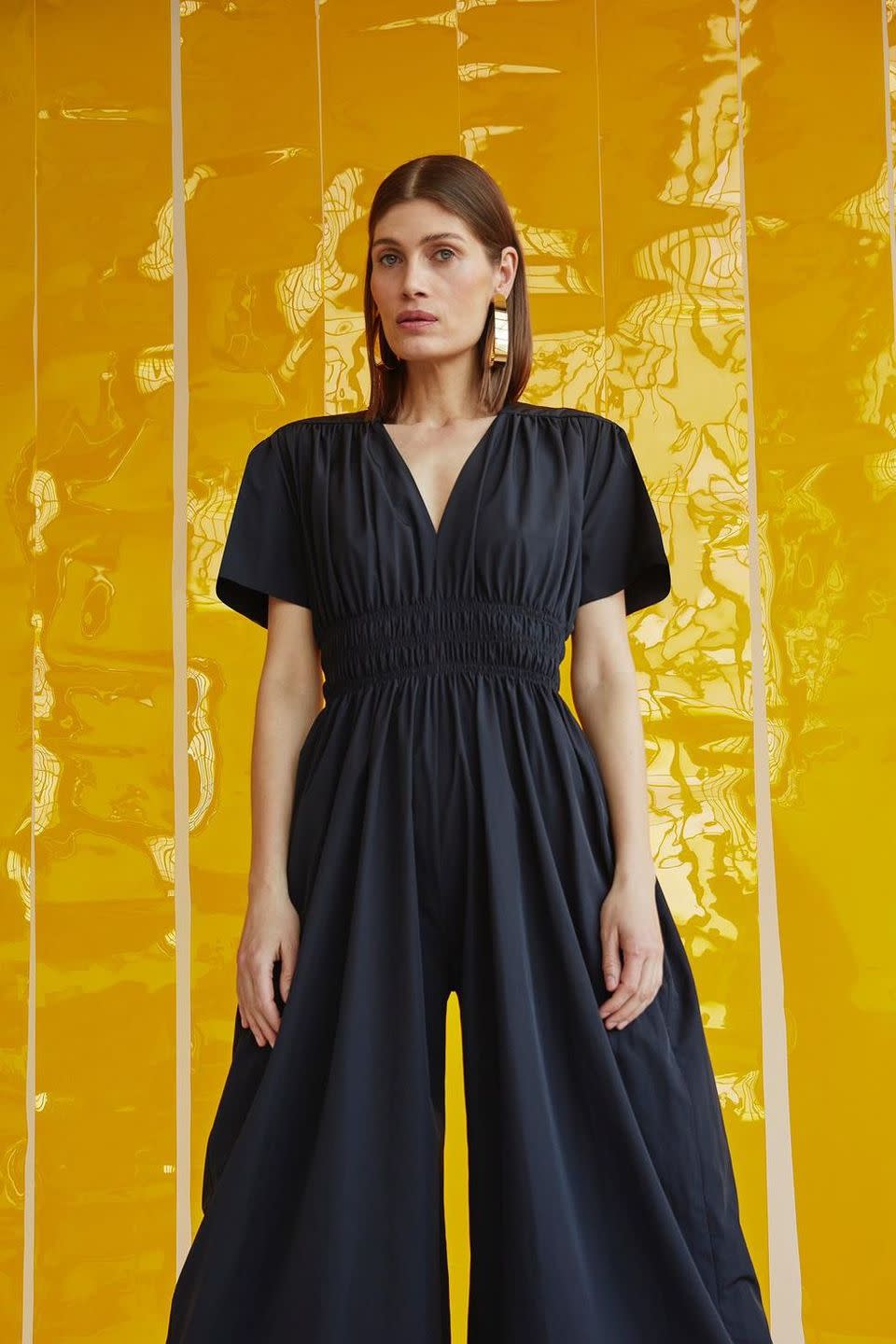
Sheep Inc.
Founders set up Sheep Inc. to demonstrate that there can be a new way of producing fashion and where clothes are part of the solution, rather than the problem. When you buy your jumper, you're allocated a real-life sheep from the same New Zealand farm your jumper's wool comes from. Each sweater has a digital NFC tag on the hem and you'll also be sent regular updates on how your sheep is doing. All Sheep Inc.'s farms comply with the stringent animal welfare standards set by the label and ZQ Merino.
Edzard Van Der Wyck, CEO and co-founder of Sheep Inc.: "Brands must behave in a way that has a regenerative effect on the environment. So that doesn’t just neutralise its impact, but through its existence and the way it does business improves the state of the planet. We approach our supply chain from the bottom up compared to the top-down approach of traditional brands. This gives us 100 per cent transparency and total control over every part of the supply chain that we optimise for sustainable impact. We also run a fully impartial third-party lifecycle assessment on our products to ensure that there is no greenwashing to our claims."
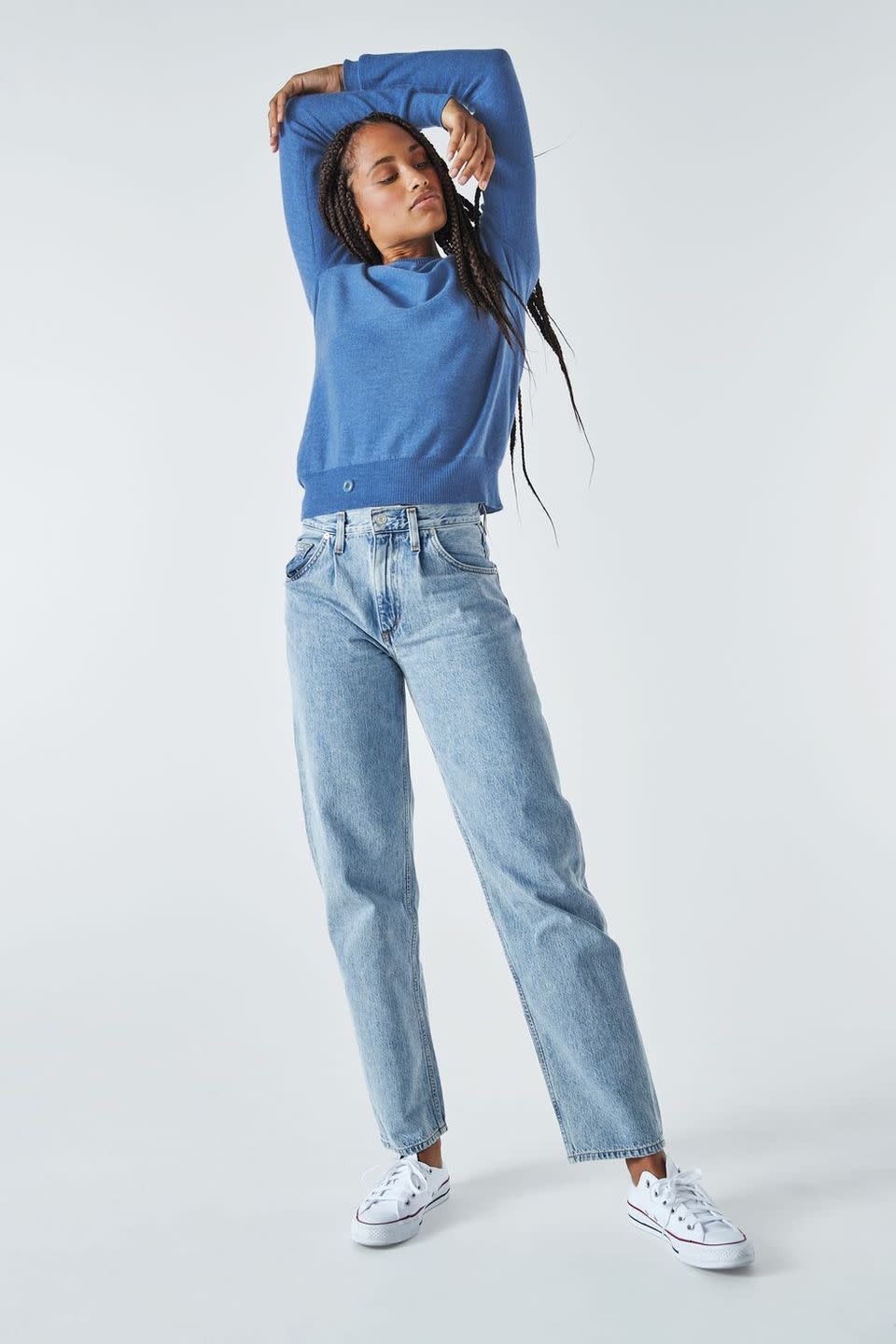
Bassike
Bassike is built on the ethos of treating people and the planet with respect, ever since it first launched in 2006. The label has become the go-to for luxurious and wearable everyday pieces, that can be dressed up or down depending on your aesthetic. Bassike focuses on high-quality design and is committed to sustainable manufacturing and supports local industries in Australia, where the brand is based. Bassike's hard work hasn't gone unnoticed, as it achieved B Corp and carbon neutral certifications.
Deborah Sams and Mary Lou Ryan, Bassike co-founders: "Shopping with a conscience and supporting ethical brands has never been more important. We don’t pretend to be perfect, but we are proud of the work we have done supporting our local industry and working with organic cotton from the very beginning, and more recently achieving B Corp and carbon neutral certification. These milestones reflect the many commitments we have made over the years, from producing garments in Australia with green energy, to zero-waste innovation by partnering with a world-leading technology that will repurpose our excess cotton jersey material into organic mulch to be reused in other industries. By purchasing a Bassike product, you know you are supporting a design-led business that is considerate of people, planet and prosperity for all."
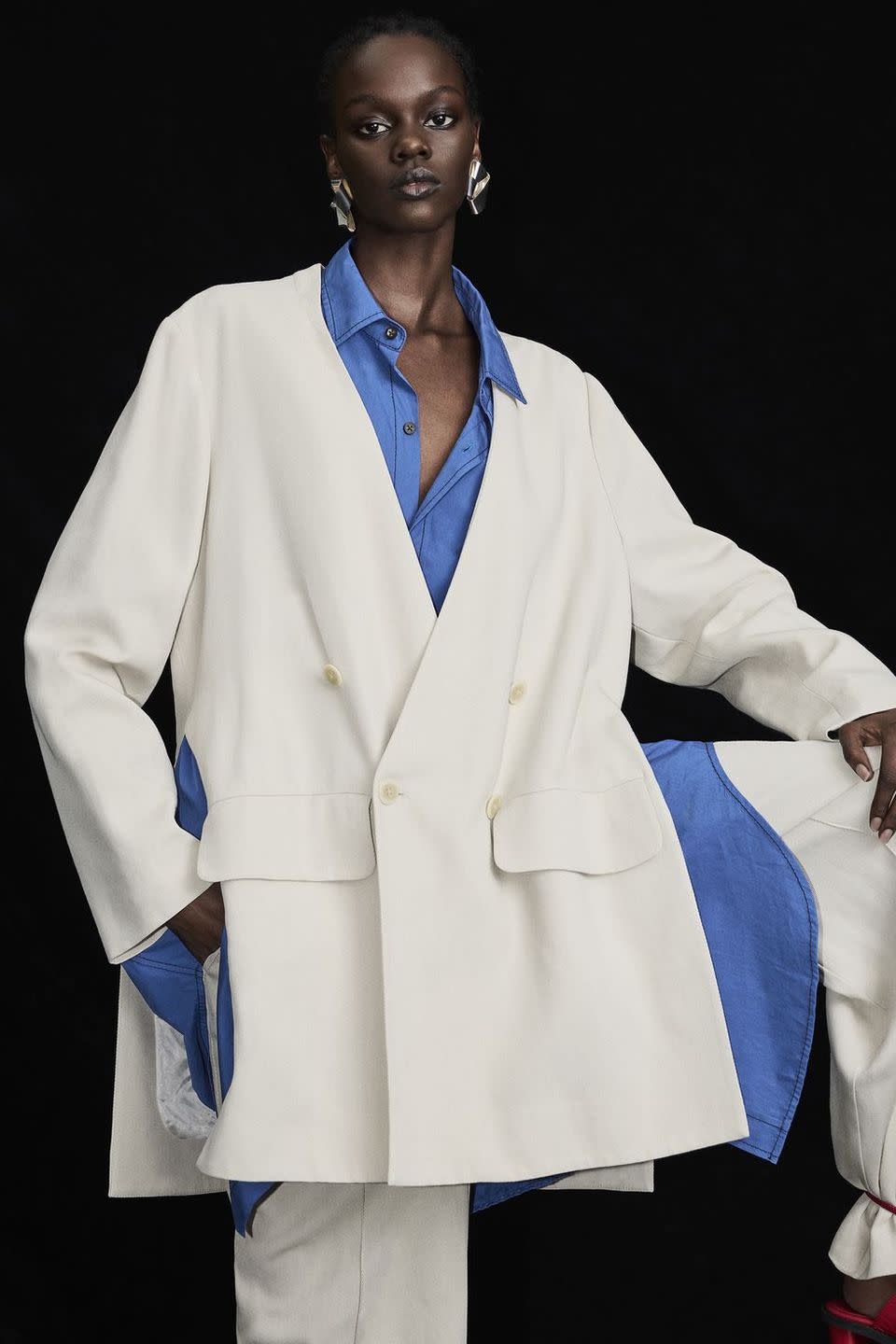
Del Moment
Del Moment was started to educate and always put people before product, creating a wardrobe that we're truly proud to wear. The brand is 100 per cent manufactured locally in Australia and extremely committed to full transparency and uses sustainable materials to ensure ethical production.
Bianca Gregg, founder of Del Moment: "No shortcuts, authentic transparency, and active conscious choices. It is the responsibility of the brand to push the boundaries of what came before us and cultivate change. If you are a sustainable business, it must be authentically implemented from a foundational aspect of the business, not be an afterthought. Transparency is key, this is what makes sustainability inclusive and accessible. A sustainable business has the responsibility to educate the community and audience."
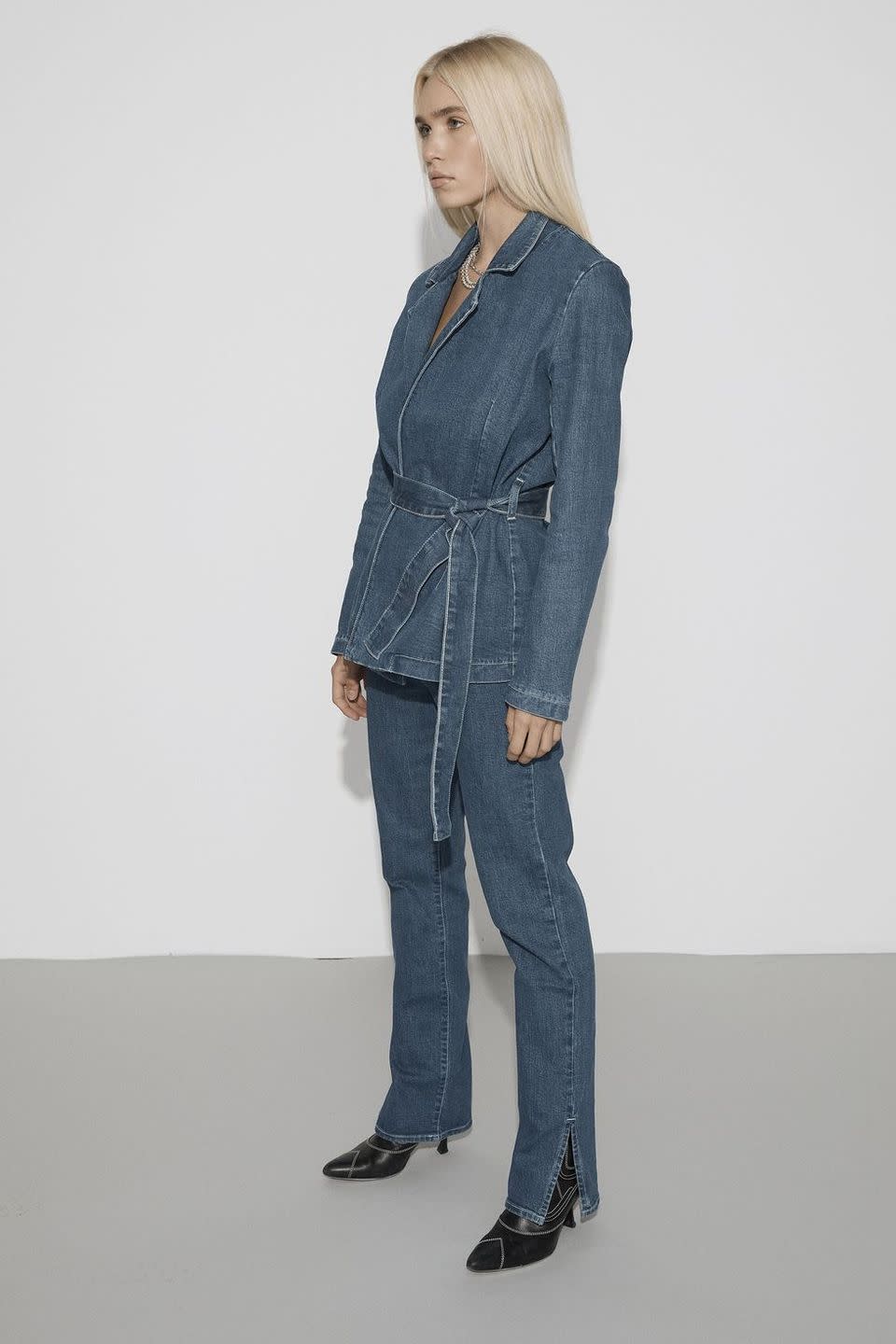
CAALO
New York-based designer Chelsea Claridge offers non-gender-specific garments with transformability, so the wearer can get multiple looks and aesthetics from one piece. CAALO only partners with sustainable factories that are environmentally and socially responsible, as well as using recycled fabrics from Italy, Japan and Korea (that are OEKO-TEX Class 1 certified and all of our Down is RDS certified).
Chelsea Claridge, creative director at CAALO: "Sustainability goes beyond using recycled/eco fabrics and producing locally and sustainably; all of which we do. We are about the purpose and meaningfulness behind clothes. Creating a piece that can be worn five different ways in multiple seasons, allowing endless possibilities for personal styling and functionality. We ensure the highest quality construction so that our pieces can be passed down for generations instead of ending up in landfills. We’re all about buying less but buying better. Everyone has that special, timeless piece in their wardrobe that they turn to time and time again. That is what we’re always striving to create."
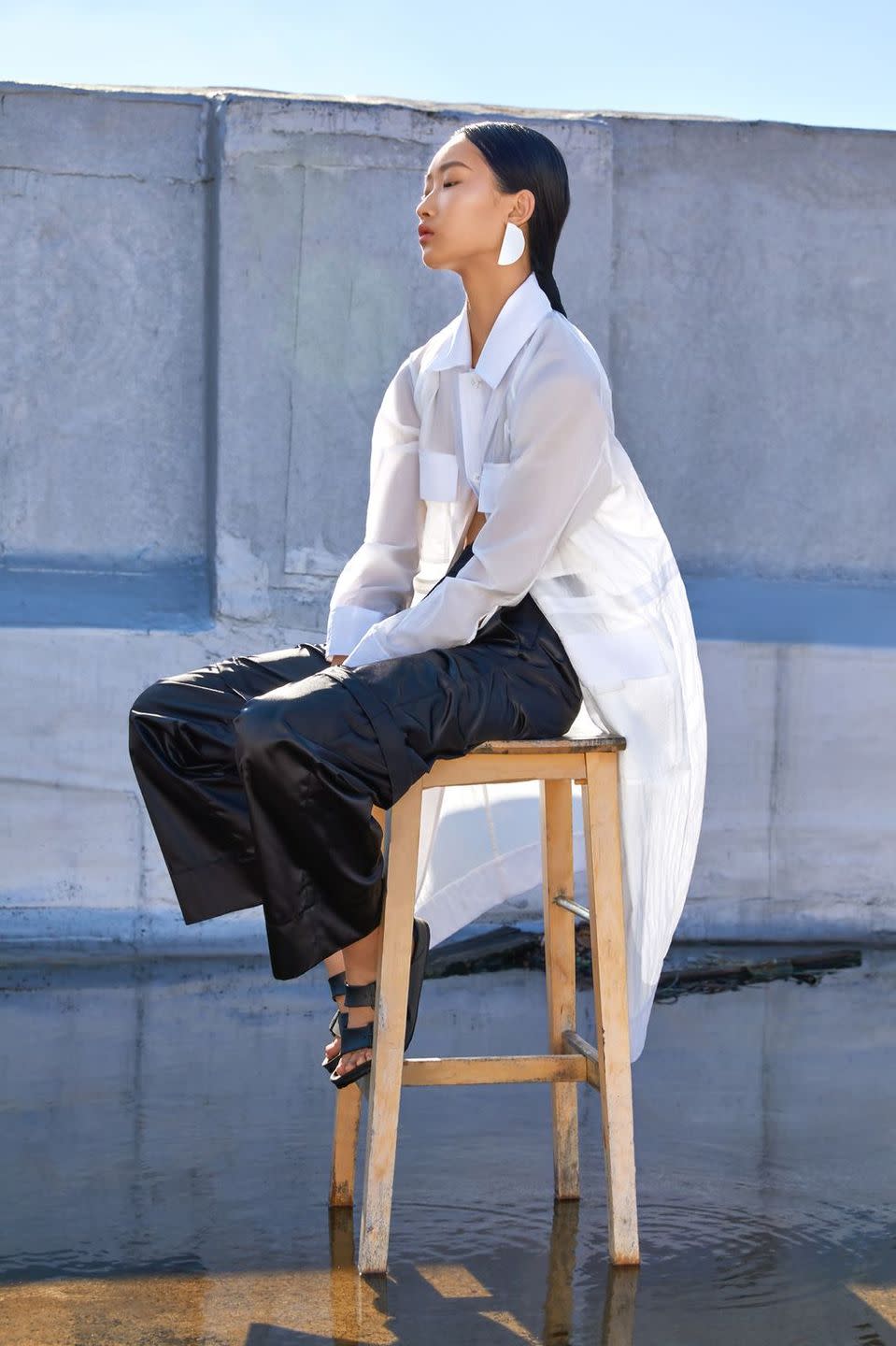
House of Dagmar
Swedish label House of Dagmar captures the very essence of Scandinavian culture – a contemporary yet playful aesthetic that never goes out of style. Founded in 2005 by three sisters, Karin Söderlind, Kristina Tjäder and Sofia Wallenstam, House of Dagmar is loved by stylish celebrities such as Rosie Huntington-Whiteley.
House of Dagmar founding sisters: "For us, there is no other way of working within the fashion industry than to do what we do now. We work to create responsible collections that do not damage the ecosystem and work actively to inspire our consumers to invest in high-quality pieces that have a longer lifespan than the average clothing item. The production and materials of our clothes make up around 70 per cent of our CO2 footprint. Therefore, we are using mostly certified materials and use recycled instead of virgin materials with fewer chemicals and less water usage in production whenever we can. Our yearly footprint analysis is our guide to holding ourselves accountable."
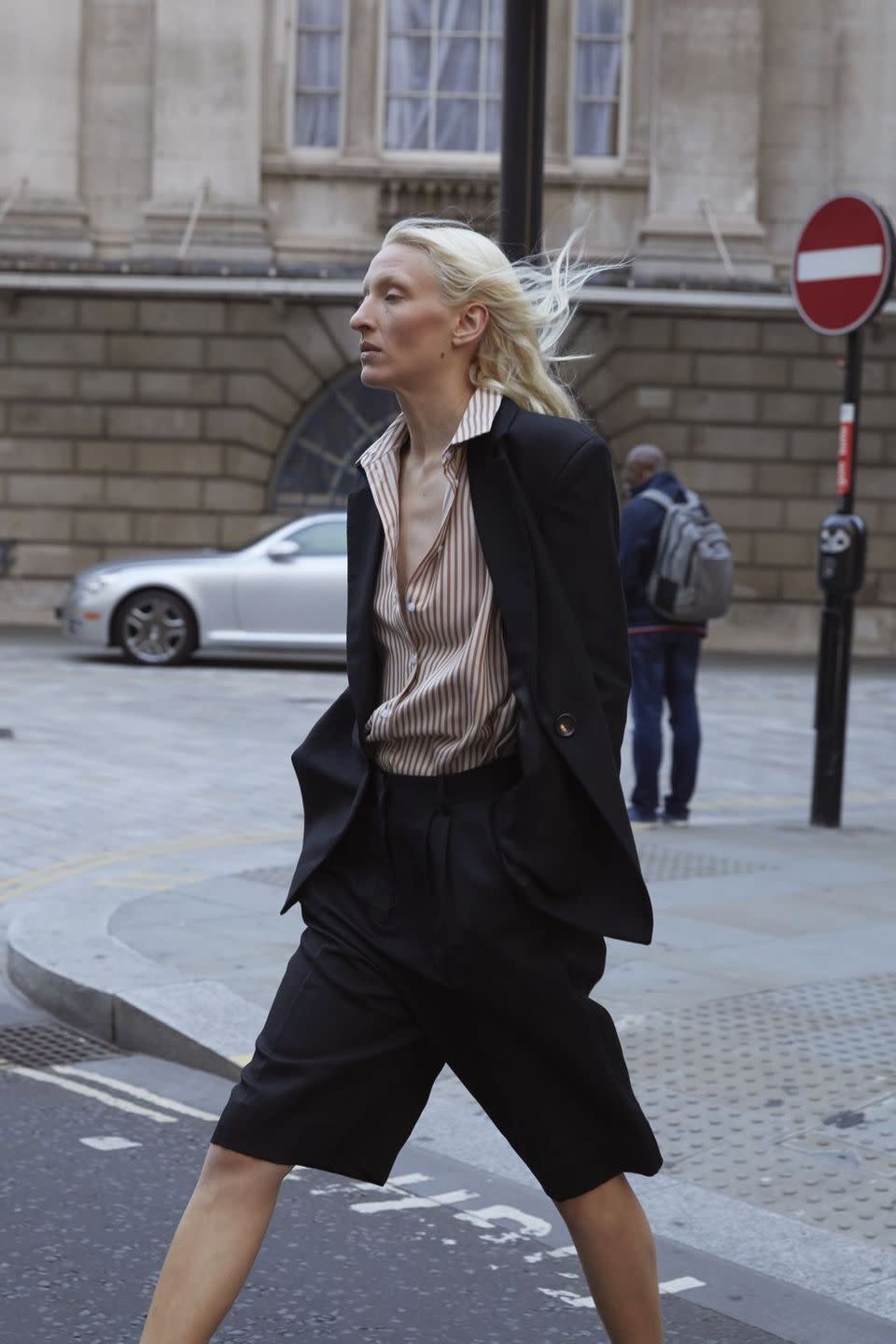
Bottletop
Bottletop is a sustainable brand that has luxury fashion at its core. It was launched in 2002 by Cameron Saul, along with his father Mulberry founder Roger Saul, to launch bags created from recycled bottle tops in Africa which were lined with waste leather from Europe. Since then, Bottletop has become a household name in the sustainable fashion world. Its store, situated in a prime location on Regent Street alongside fashion greats like Burberry and Tommy Hilfiger, proves that sustainable accessories are well and truly desirable.
Cameron Saul, founder of Bottletop: "Sustainability is at the core of everything we do. Since we were founded in 2002 our mission has covered four key areas. Our 'materials' sourcing program we continually work on introducing new regenerative or waste materials into our supply chain. In the 'production' space we address inequality by working with economically disadvantaged women through slow fashion programs. Under 'advocacy' we work to inspire our global audience to take action on critical development issues - our #togetherband campaign with the UN Foundation spearheads this area. The Bottletop Foundation supports grassroots NGOs advancing the SDGs to drive real impact on the ground."
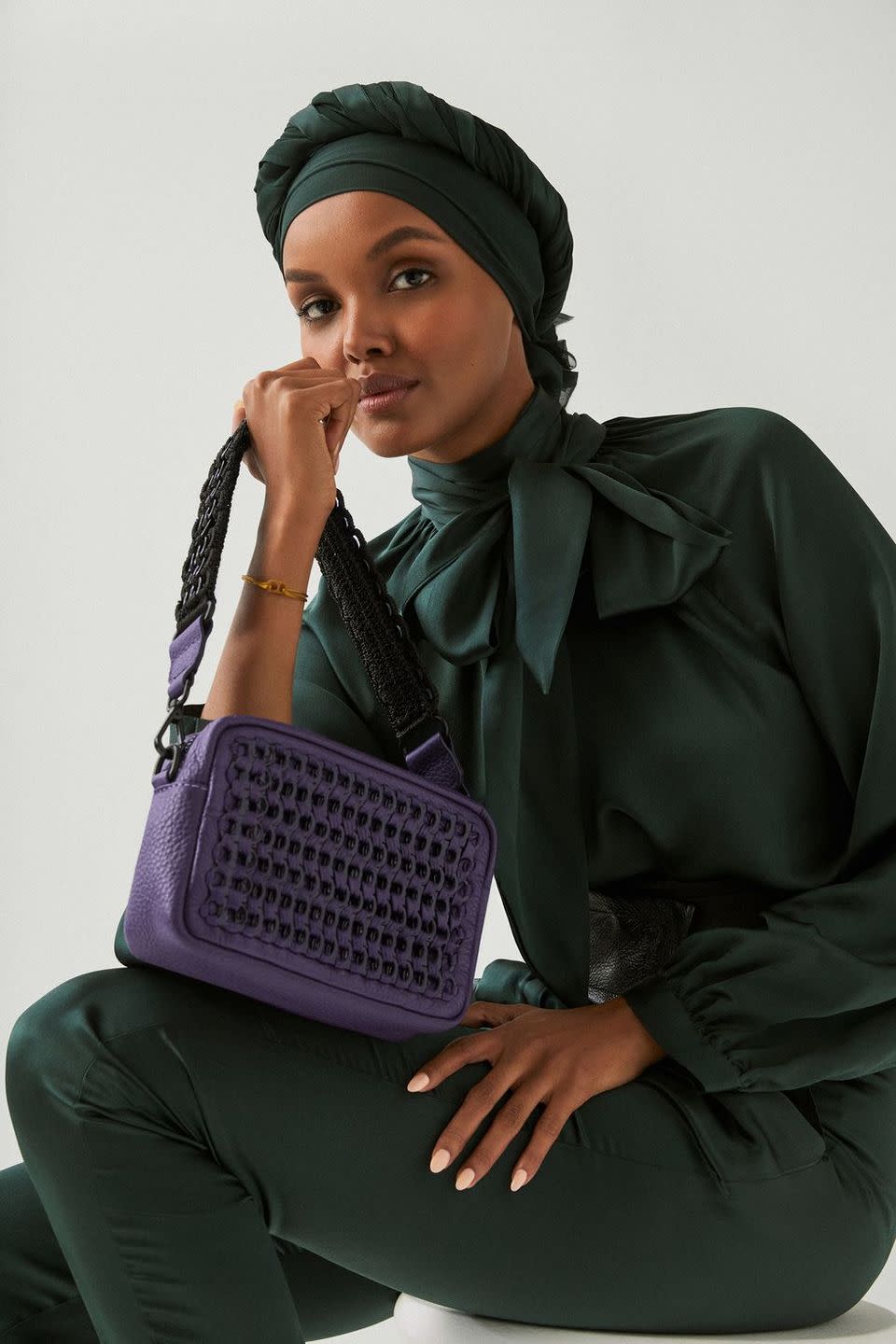
Bleusalt
Founder and designer Lyndie Benson wanted to create a brand that left a minimal impact on the ocean and planet she cares so deeply about. The fabric used embodies all of the beauty of cashmere but is breathable, machine washable, and eco-friendly. Each piece from the brand is vegan, cruelty-free, and antimicrobial (kills microorganisms). Models are big fans of Bleusalt, with Kaia Gerber and Gigi Hadid wearing its styles.
Lyndie Benson, founder and designer: "Bleusalt was born around the ocean and the environment, so, authentically, we want to do the best we can while providing a way to dress and feel your best every day. Fortunately, positive change is happening and people now care more and more. We wanted to address waste, so as a brand, we try our best to use all remnants and cut out as much waste as possible in our packaging, we also never use plastic. Bleusalt primarily focuses on the quality of our garments, because when something is made in quality versus fast fashion style it just simply lasts longer."
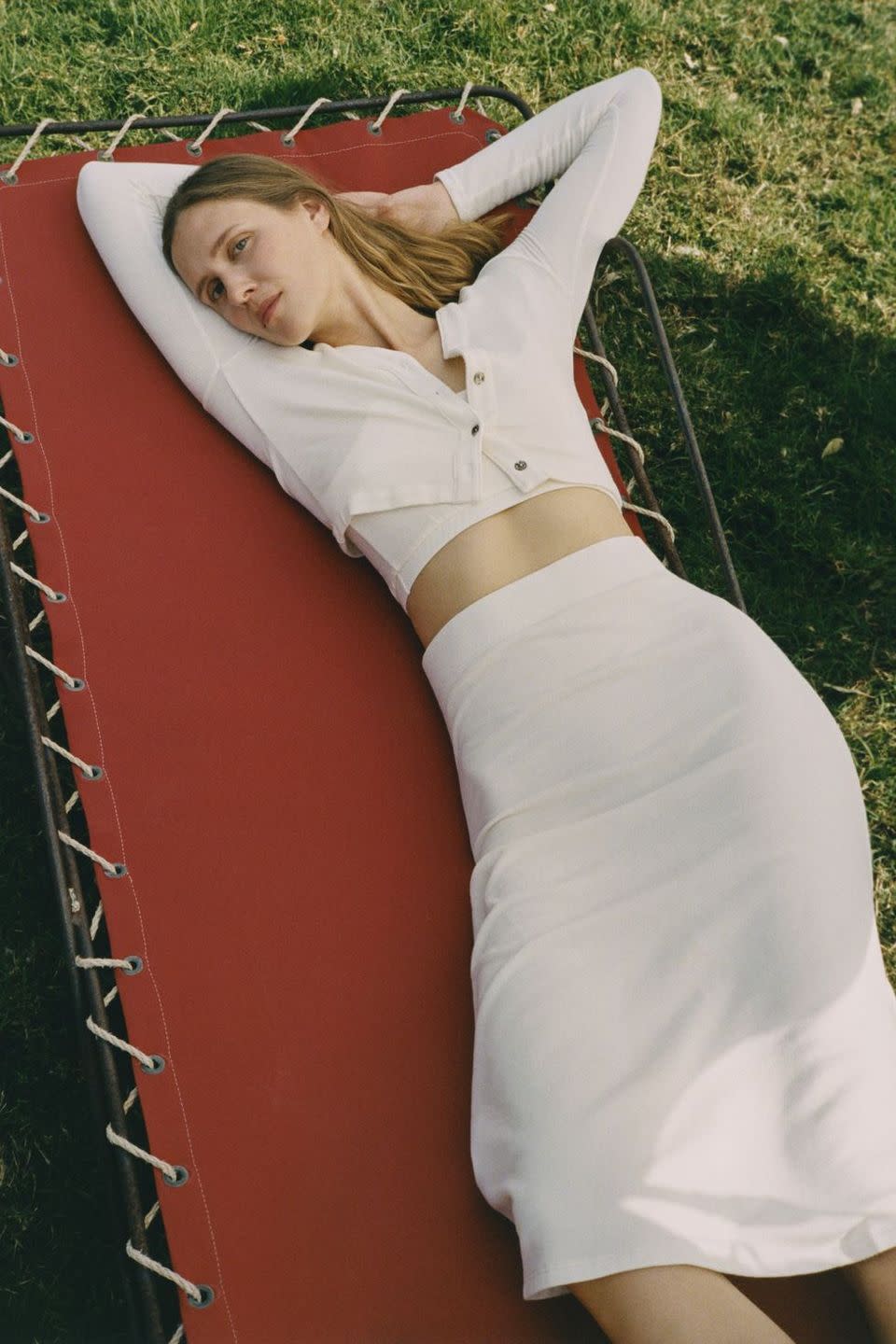
Essén the Label
Essén the Label was launched as a response to the fast-fashion industry and the brand quickly learnt that, to produce stylish shoes with a low environmental impact, it needed to step away from the traditional format of seasons and continually changing trends. All of Essén's pieces are produced in small batches within its factories (read more here) in timeless colour palettes that never go out of style, often via pre-order to minimise waste and overproduction.
Marre Muijs, Founder and creative director of Essen: "I don’t know if fashion can ever be truly sustainable, but you can take an everyday necessity like shoes, and turn them into a vehicle for change. As a small creative brand, we feel the need to reimagine how the industry has traditionally done things and hopefully inspire others to do the same. This means continually assessing every aspect of the business and pushing ourselves to keep improving; making more responsible choices across our supply chain to minimise our social and environmental impact. It also means transparency and cross-industry collaboration; taking small steps together that create meaningful change."
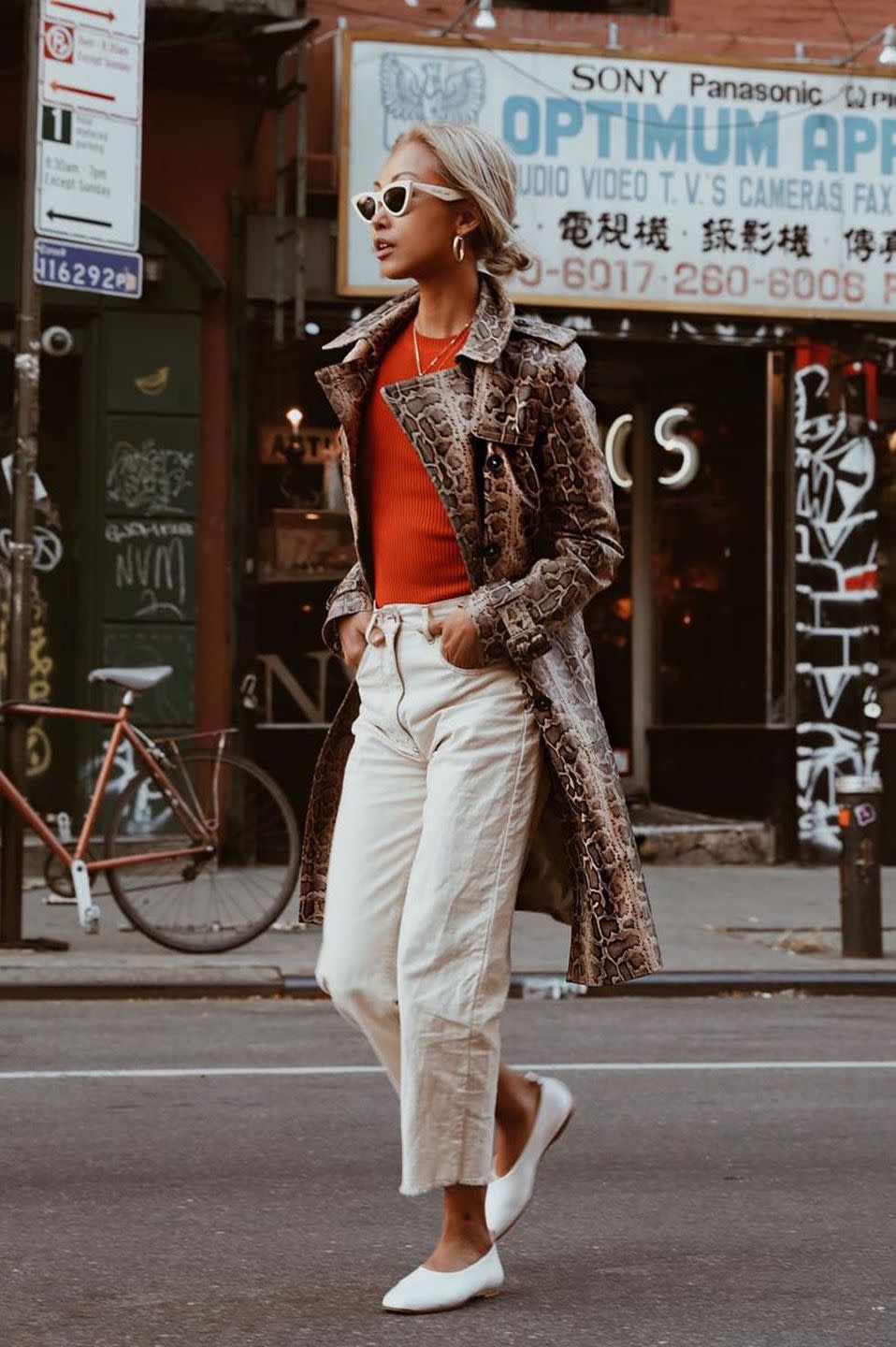
Veja
Shop Now
Veja was established in 2004, counts impeccable attention to detail as a signature and is known for using sustainable replacements. Veja also partners with Atelier Sans Frontières, an organisation that helps people who have been incarcerated or are otherwise struggling to find work, to employ workers to prepare orders.
Sébastien Kopp co-founder of Veja: "Our key to sustainability is to go into the field – to know what we’re talking about. Sustainability is not a PowerPoint, it is more the mud of the Amazonian Forest, understanding the problems of reality. Today, the young generation believes you can set up a project or brand sitting behind a computer. We think this is a big mistake. To meet the people who are doing your clothes or shoes, visit the factories, to go to the organic cotton fields – those are the most inspiring moments for us. It keeps you in reality, and we think that is what our world needs: less talk, fewer words, and more reality. We don’t tell others to change but put all our energy towards changing ourselves."
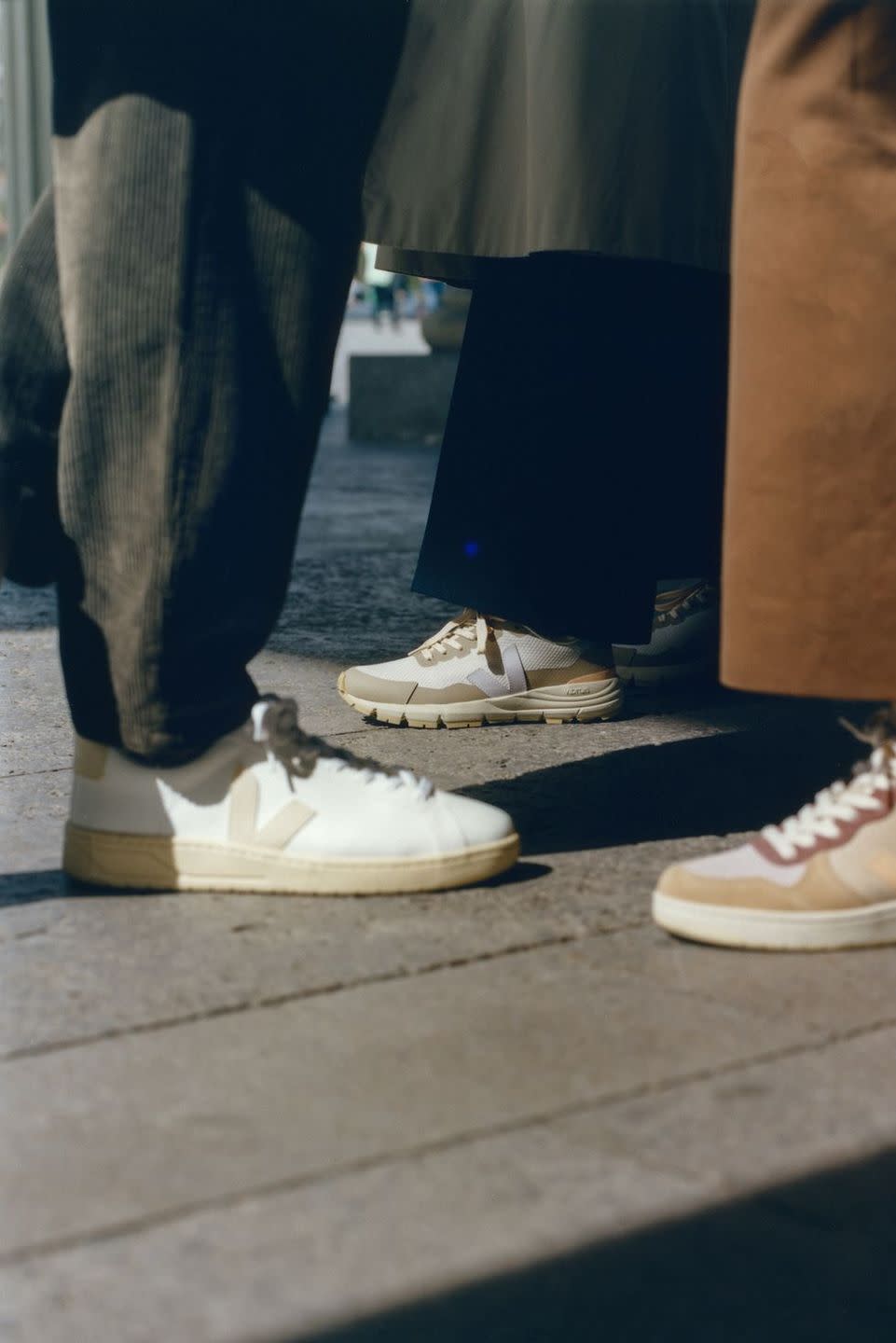
Bird
Family-run business Bird was launched in 2017 by three brothers to create sustainable and ethical eyewear. The label is the first and only B Corp Certified eyewear brand in the UK, meaning it reaches the highest standards of verified social and environmental performance, as well as public transparency.
Ed Bird, co-founder: "For us, it is about reframing what really matters – people and planet, creating eyewear for a better world. Bird is a carbon-negative company and has plans to become the first fully carbon-mapped eyewear brand in 2022. Every pair sold gives back through their successful, long-term ‘Share Your Sun’ partnership with SolarAid; distributing solar light to families across Africa, replacing the need to use dangerous fossil fuel-burning lamps. All packaging is recyclable, and biodegradable, as well as their innovative EcoWrap mailer bags developed to be marine safe and water-soluble."
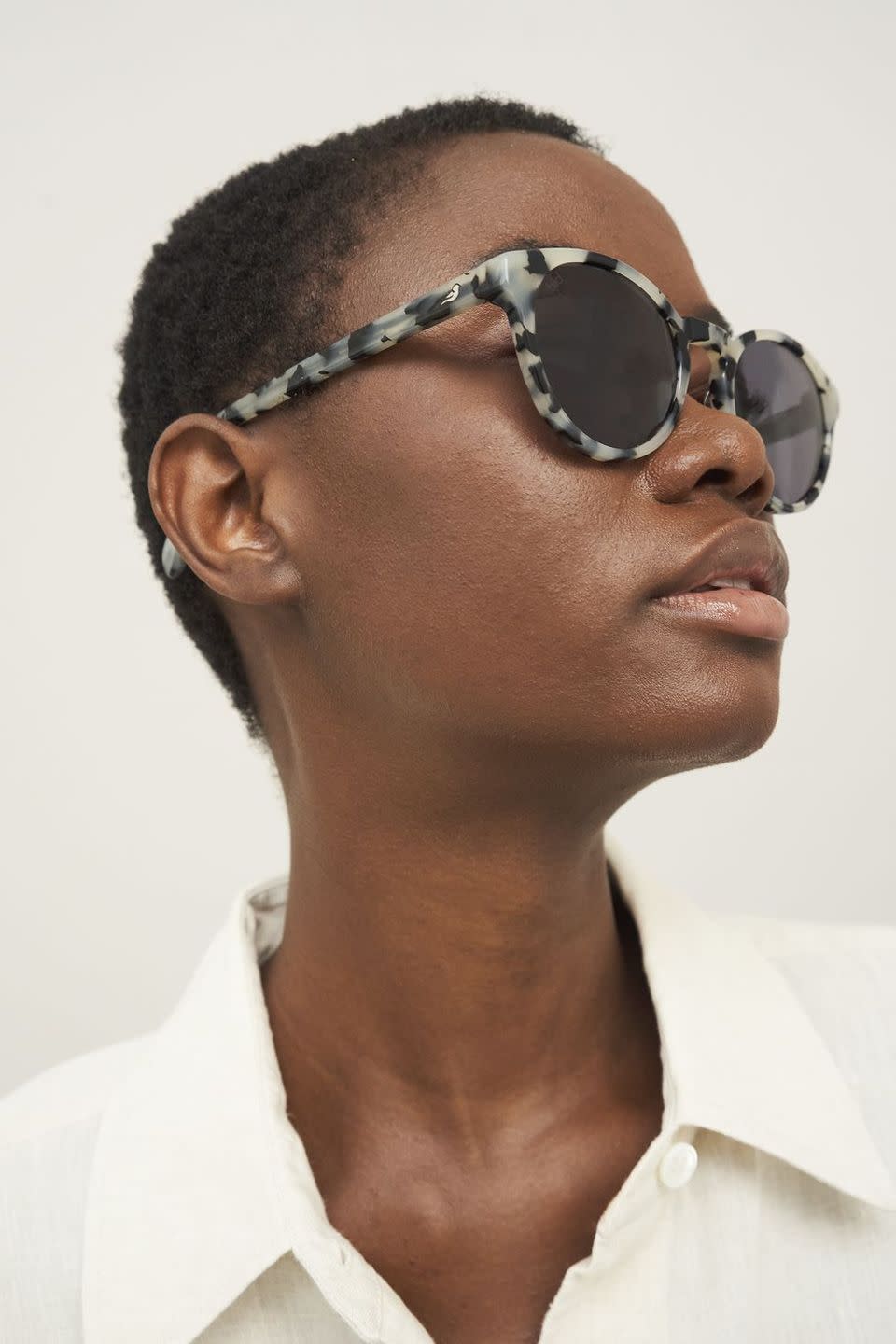
Away That Day
If you're searching for sustainably made swimwear at a reasonable price, then turn to Away That Day. The label creates its collections using ocean-found plastic and fishing nets as the key material to clear the sea of litter. The resulting fabric Econyl is soft, flattering and durable, but also eco-friendly. Packaging is made from compostable mailing bags and recycled tissues.
Ingemae Kotze, founder of Away That Day: "Accountability and transparency. We believe that sustainability goes far beyond the fabric we use to make our products. Who makes the product and do they earn a living wage? Where are the products and where are the materials sourced from? A sustainably focused brand should question these points and be willing and happy to share this information with their customers. All of our factories have also been SMETA audited, which looks at worker's standards, health and safety and business ethics."
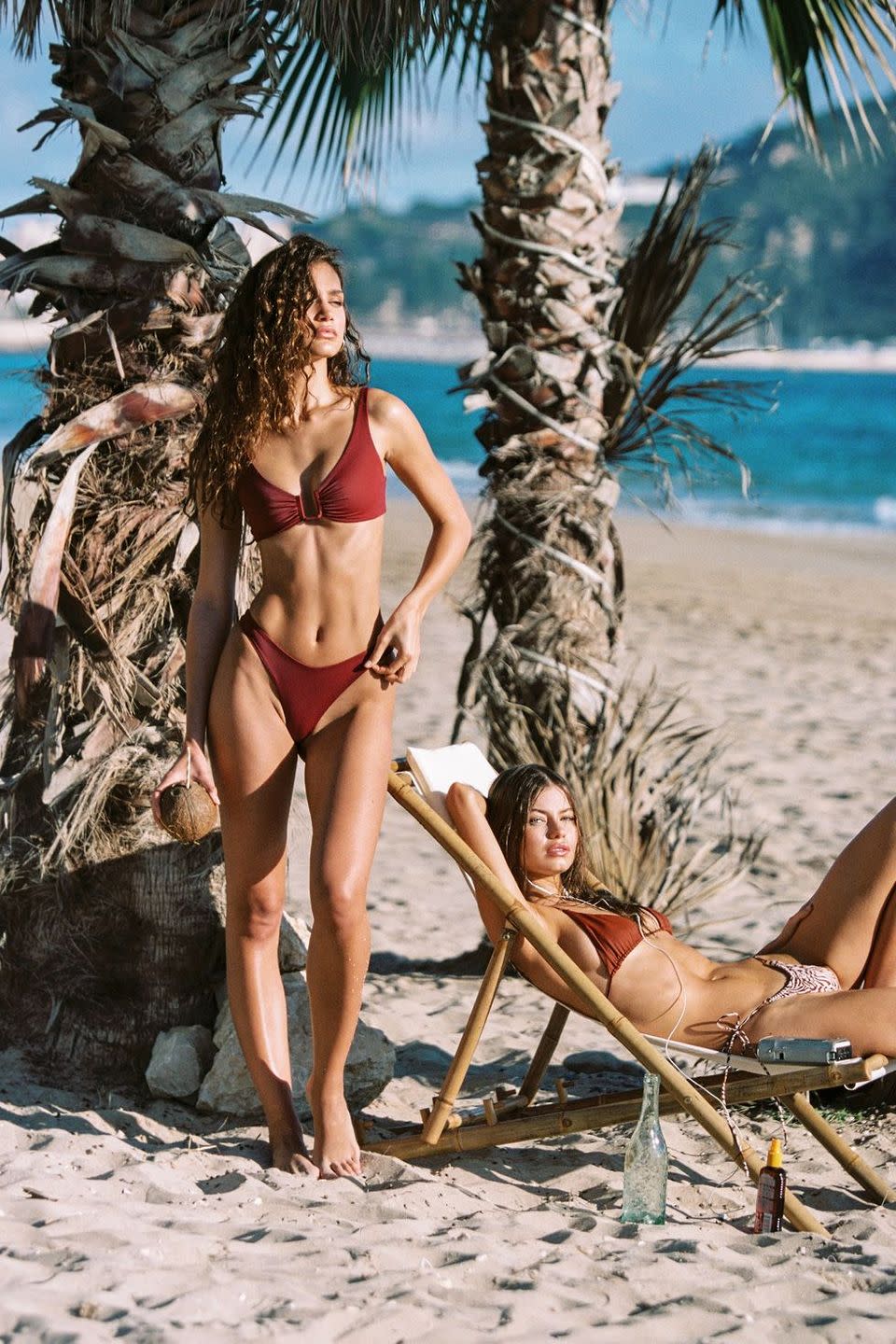
Bethany Williams
Bethany Williams was the deserving winner of the 2019 Queen Elizabeth II Prize for Design, thanks to her work with food banks, women's rehab centres and refuges. Her streetwear label is reinventing the typical production process by turning it into a virtuous cycle.
Bethany Williams, designer: "Being a sustainable brand can mean a multitude of things. It could be how a brand looks at the materials that they use, their production process and supply chain impact, the impact that the final product has on the world, and taking care of the people involved in the whole process. Ultimately, sustainability to us means ensuring our brand creates a positive impact on both people and the planet, and we feel that being transparent with our brand and processes is a good way to build trust and to create a more positive system of working."
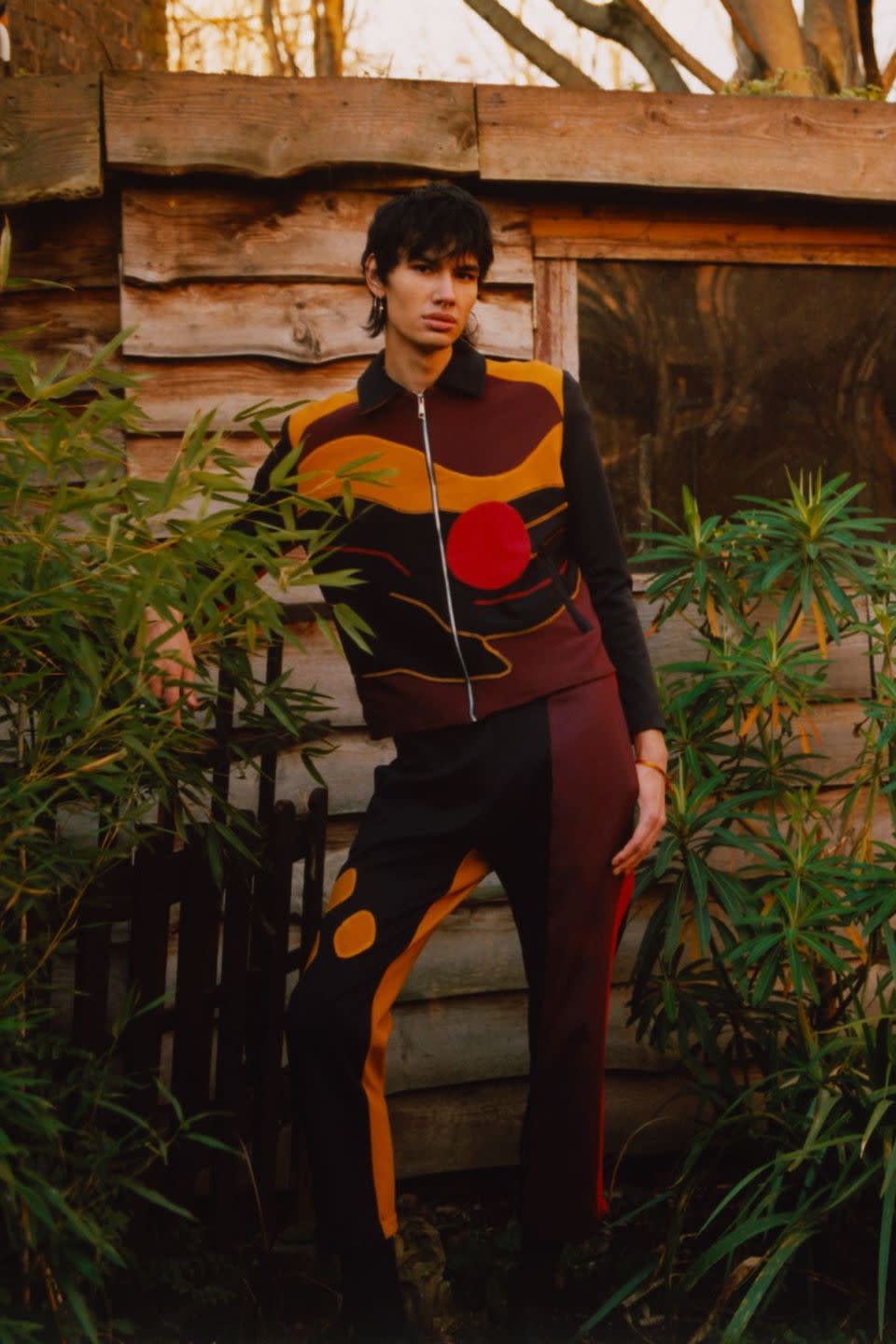
The Odder Side
The Odder Side is the brainchild of two best friends who were united by a dream of creating beautiful yet comfortable clothes. Ever since the brand's launch in 2015, upholding strong eco credentials has been a key focus, only producing long-lasting, timeless pieces. The Odder Side uses only certified sustainable fabrics such as Oeko-Tex, GOTS and Lenzing; it keeps its supply chain short and ensures all packaging is recyclable.
Justyna Przygonska, co-founder of The Odder Side: "At The Odder Side, we're committed to sustainability. It’s at the heart of everything we do, from design, fabric and care to packaging. Since our launch, we've worked to create pieces that reduce environmental impact and are built to last. We keep our supply chain short and build long-lasting relationships with suppliers and clients. We educate them on how to look after their garments to extend their life span, and we guide them on checking fabric compositions before they make a purchase. We’re dedicated to continuing to do better in the future. We aim to play our part in making the fashion industry less dirty by implementing various solutions and practices into our design and production processes. We are not perfect yet, but we’ve got big plans for the future."
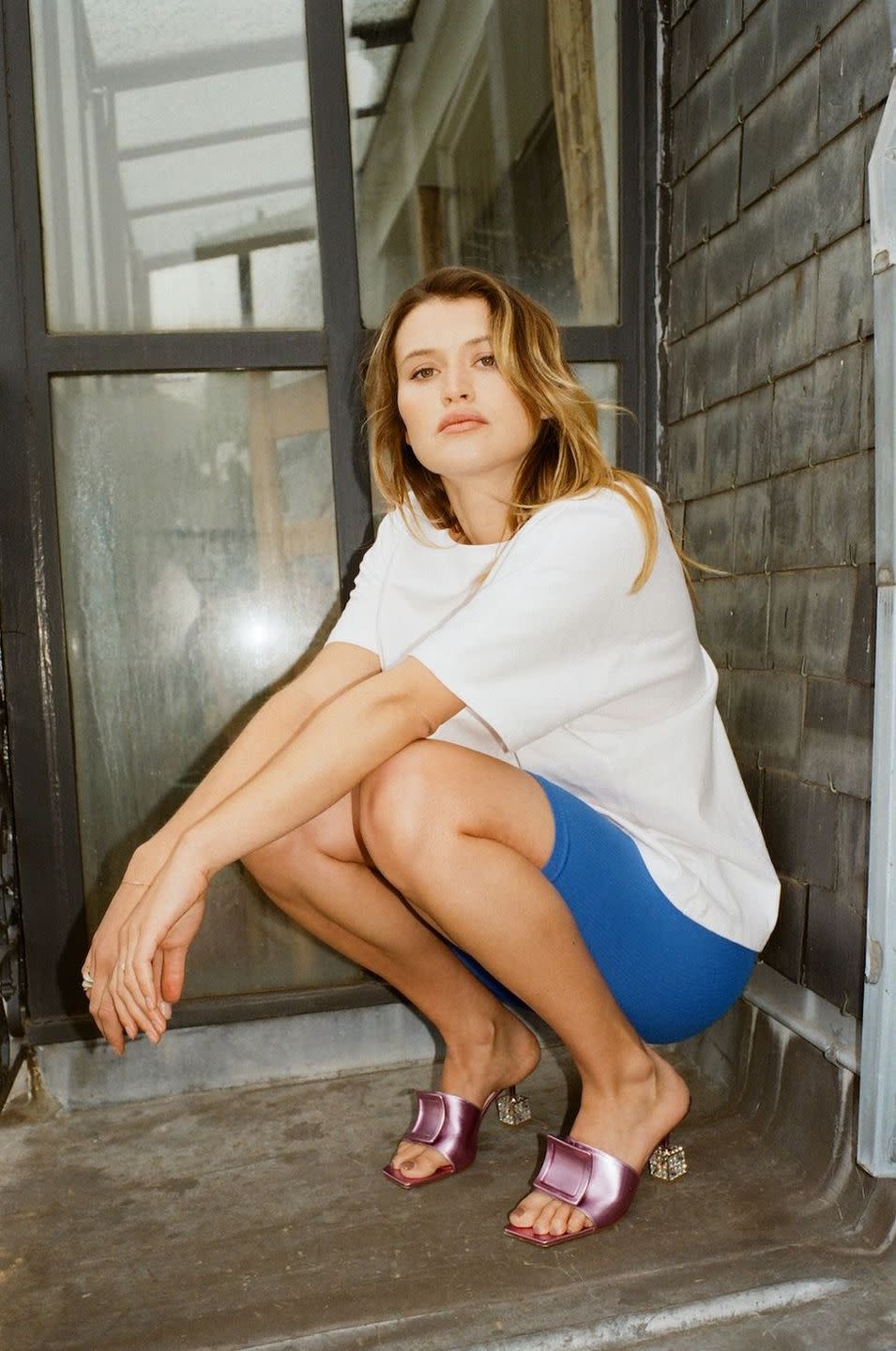
You Might Also Like
